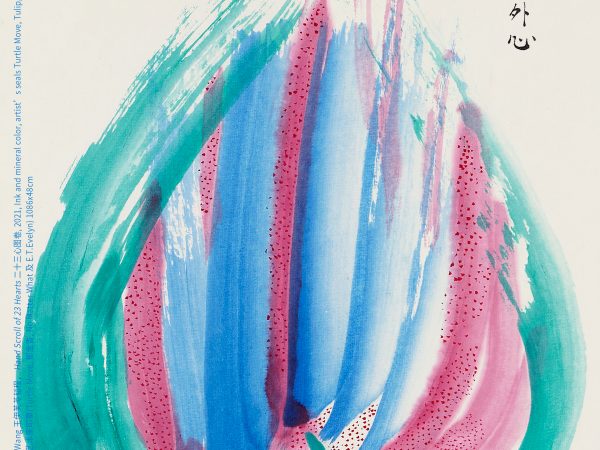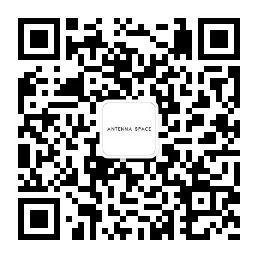China ink, acrylic color, graphite, pencil on linen canvas
185 x 185 cm
Evelyn Taocheng Wang
BIOGRAPHY
Evelyn Taocheng Wang (b.1981, Chengdu) currently lives and works in Rotterdam. In 2006, she graduated as a Bachelor of Chinese Traditional Art from Nanjing Normal University. In 2012, she completed her MFA in HBK Städelschule.
Evelyn Taocheng Wang’s work is constituted by a “constellation” of sources that span over various defined categories of art, including painting, calligraphy, installation, video, fashion design and performance. Her work serves as a medium and agency for multiple themes that she has set up: traditional Chinese art, modern and contemporary art, colonial history, queer theory, femininity and feminism. Through overlay and hybridization, the artist arrives at a vocabulary that integrates and interconnects these seemingly autonomous notions.
From 2012 to 2014, Wang completed an independent artist residence program at the De Ateliers in Amsterdam. Her work is in the collections of ABN AMRO Collection, Amsterdam, The Netherlands; Art Institute of Chicago, Chicago, US; Centre Pompidou, Paris, France; Stedelijk Museum Amsterdam, Amsterdam, The Netherlands; Centraal Museum, Utrecht, The Netherlands, among others.
Recent solo exhibitions: An Organic Day, Kayokoyuki, Tokyo, Japan (2024); Het Licht Is Rond (The Light Is Round), Dordrecht Museum, The Netherlands (2023); An Equivocal Contrast, Rockbund Art Museum, curated by X Zhu-Nowell, Shanghai, China (2023); Norwegian Music in Dutch Window, Kayokoyuki, Tokyo, Japan (2022); Heart of Eyeshadows, Antenna Space, Shanghai (2021); Reflection Paper, Kunstverein Düsseldorf, Düsseldorf, Germany (2021); Het Bloemblaadje, Dat Tijdens Het Ochtendkrieken Was Gevallen, Paktte Ik Op In De Avondschemering, Hermitage Museum with ABN Armo Art Prize, Amsterdam, The Netherlands (2021); Sour Gnossiennes, Museum Abteiberg, Mönchengladbach, Germany (2020); Spreading Elegance, FRAC Champagne-Ardenne, Reims, France (2019); No Blood in the Afternoon, Carlos/Ishikawa, London, UK (2019); What is he afraid of?, KW Institute for Contemporary Art, Berlin, Germany (2018); Company, New York, US (2018); Four Season of Women Tragedy, Galerie Fons Welters, Amsterdam, The Netherlands (2017); For An Embarrassed Person It is Always Very Difficult To Avoid Embarrassing Things, Carlos/Ishikawa, London, UK (2017); Heatweave Wrinkle, Chateau Shatto, Los Angeles, US (2017); Allegory of Transience, Frans Hals Museum | De Hallen Haarlem, Haarlem, The Netherlands (2017) among others.
Selected group exhibition: Burning Down the House: Rethinking Family, Kunstmuseum St.Gallen, Switzerland(2024); Venice Biennale Art 2024: Foreigners Everywhere, Venice, Italy(2024); One and All: New Artistic Styles of Contemporary Painting, The National Art Mesuem of China, Beijing, China(2024); Project Space Opening: Antenna-Tenna, Antenna-Tenna, Shanghai, China(2024); No Other Cure None Other Than Words in Talking, Staatliche Kunsthalle Baden-Baden, Baden-Baden, Germany(2024); Dream Time, UCCA, Beijing, China(2024);Clandestine Knowledge: Collection 1980s-Present, MoMA, New York, US (2023); Horizons: Is there anybody out there?, curated by Robin Peckham, Antenna Space, Shanghai, China (2023); Horizens, Museum für Ostasiatische Kunst (Museum for East-Asian Arts), Cologne, Germany (2022); Busan Biennale 2022: We, On the Rising Wave, Busan, South Korea (2022); Note to Self, Sofie Van de Velde, Antwerp, Belgium (2022); To Be Like Water, Tent, Rotterdam, The Netherlands (2021); In The Midst of It All, G Museum, Nanjing, China (2021); Ink City, Tai Kwun Contemporary, Hong Kong, China (2021); |||: She spins the thread, she measures the thread, she cuts the thread, Nest, Den Haag, The Netherlands (2021); Frequencies of Tradition, Guangdong Times Museum, Guangzhou, China (2020); Risquons-Tout, WIELS, Brussels, Belgium (2020); Global(e) Resistance, Centre Pompidou, Paris, France (2020); In the Presence of Absence, Stedelijk Museum, Amsterdam, The Netherlands (2020); Neither Black/Red/Yellow Nor Woman, Times Arts Center, Berlin, Germany (2019); In my room, Antenna Space, Shanghai, China (2019); Hollandse Nieuwe, Stedelijk Museum, Amsterdam, The Netherlands (2018); It’s Get Better V, ICA, London, UK (2017); Public Programme, Documenta, Kassel, Germany (2017); Barbarians & Philosophers: Images of China in the Golden Age, Frans Hals Museum, The Netherlands (2016) among others.
-
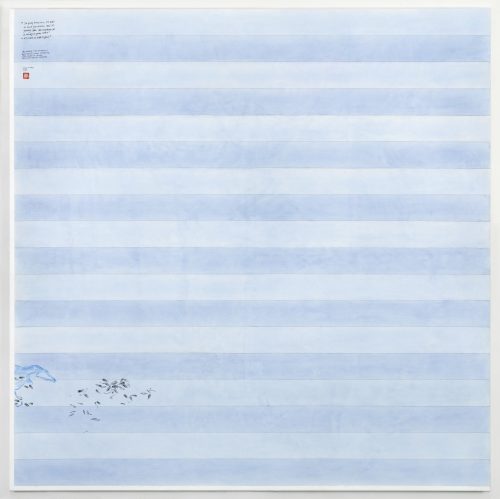
Evelyn Taocheng Wang, Spitting Sunflower Seeds after Small Talk and Imitation of Agnes Martin, 2023
作品信息Information -
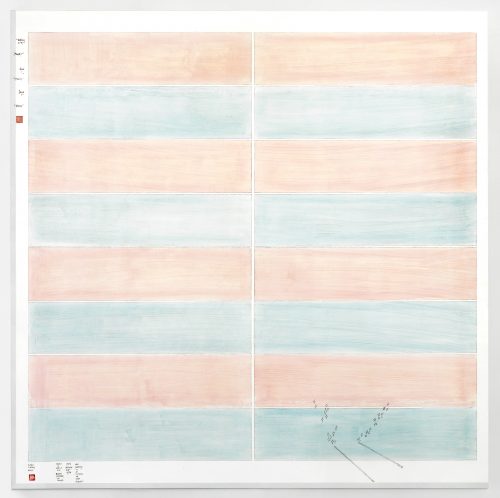
Evelyn Taocheng Wang, Sleeping Beauty (1959) and Imitation of Agnes Martin, 2023
China ink, acrylic color, graphite, pencil on linen canvas
185 x 185 cm作品信息Information -
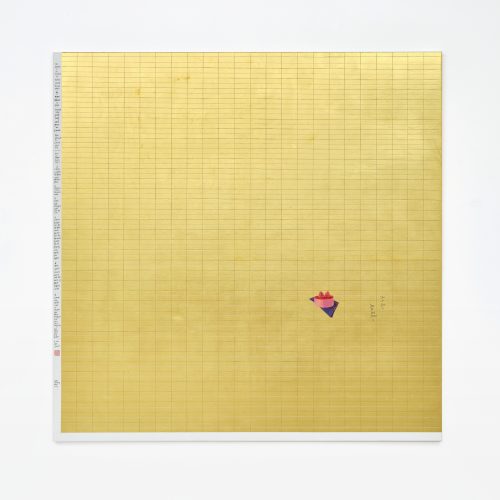
Evelyn Taocheng Wang, Friendship, 2023
Gesso primer on linen canvas, embedded 24K gold leaf, acrylic, oil, ink and artist’s seal
195 x 195 cm作品信息Information -
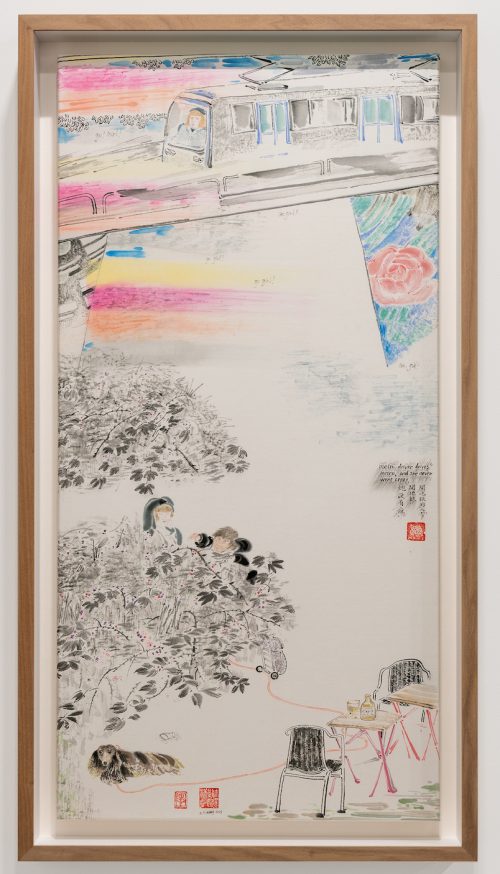
Evelyn Taocheng Wang, Metro driver drives metro, in a organic day., 2023
Calligraphy ink, mineral pigment, mounted on xuan paper and wood panel 100 x 50 cm
作品信息Information -
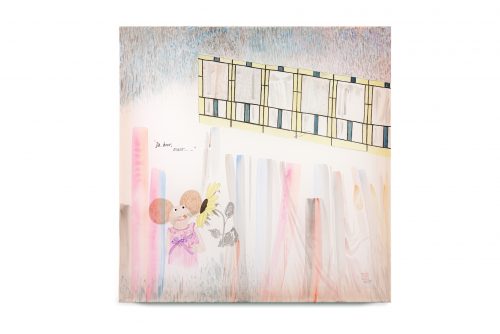
Evelyn Taocheng Wang, Ieniemienie and Dutch Window, 2023
Calligraphy ink, mineral color, on silk, trenched onto wooden frame
100 x 100 cm作品信息Information -
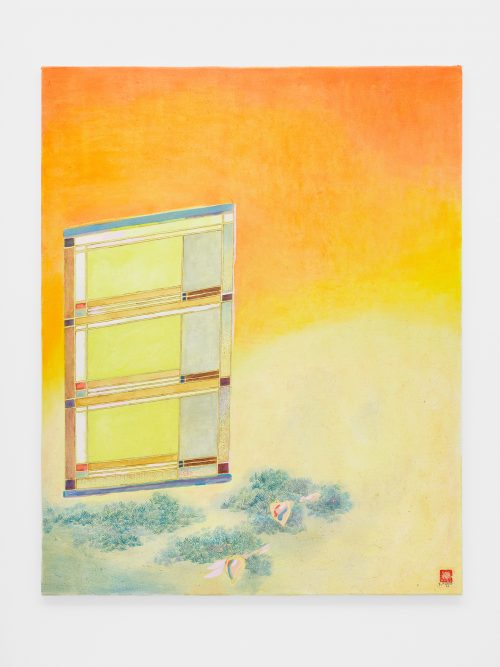
Evelyn Taocheng Wang, Dutch Window, 2022
Oil and artist’s seal on canvas
100 x 80 cm作品信息Information -
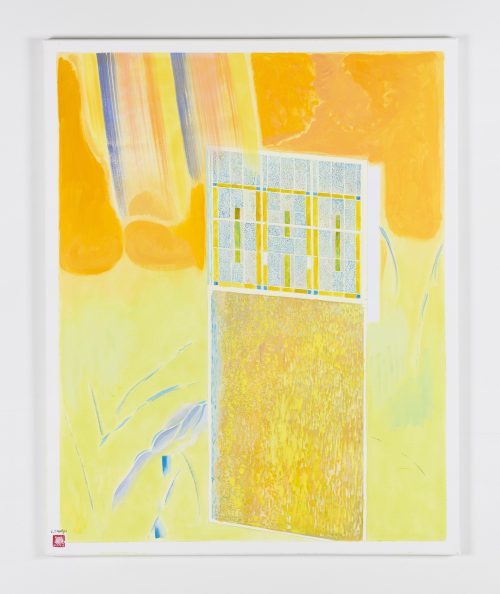
Evelyn Taocheng Wang, Dutch Window, 2022
Oil and artist’s seal on canvas
100 x 80 cm作品信息Information -
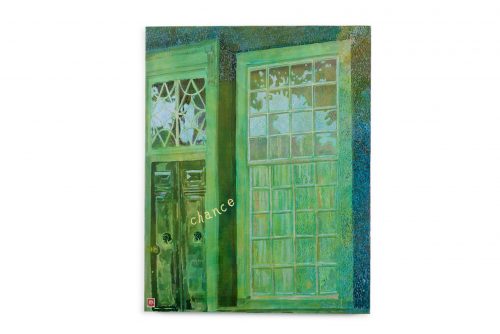
Evelyn Taocheng Wang, Chance of Light, 2023
Oil on linen
100 x 80 cm作品信息Information -
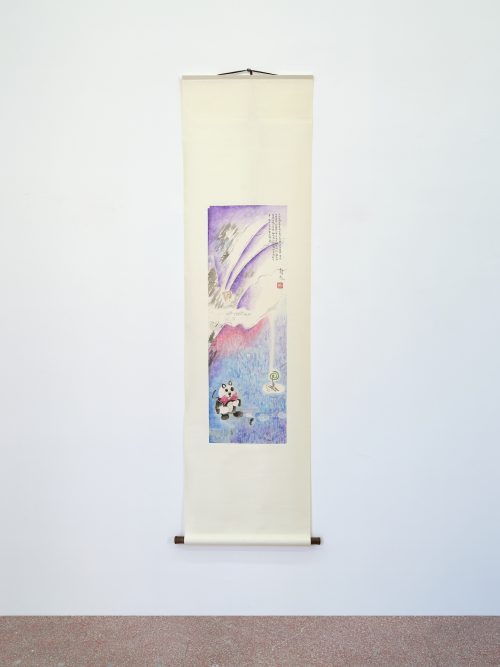
Evelyn Taocheng Wang, A Summer with Mosquito Coil and Heinemann Tom Cat Chocolate, 2021
Ink, mineral color, pencil, acrylic, paper glued on paper
102 x 34.5 cm作品信息Information -
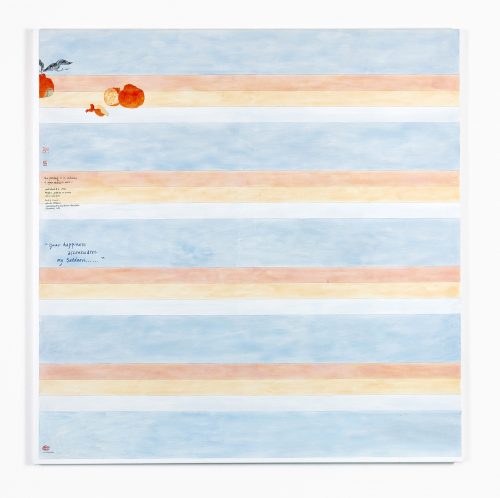
Evelyn Taocheng Wang, Tangerines on Imitation of Agnes Martin, 2022
China ink, gesso, graphite, coloured pencil, acrylic on linen canvas
185 x 185 cm作品信息Information -
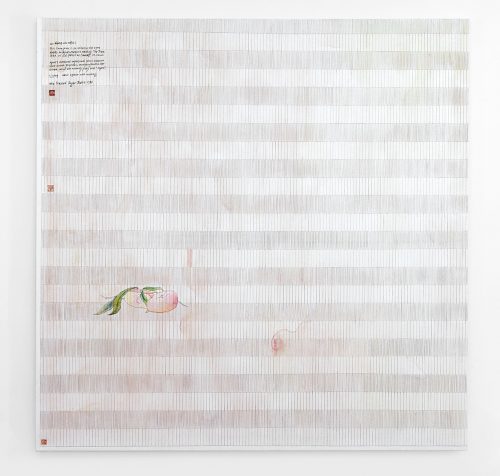
Evelyn Taocheng Wang, Flat Peach on Imitation of Agnes Martin, 2022
China ink, gesso, graphite, coloured pencil, acrylic on linen canvas
185 x 185 cm作品信息Information -
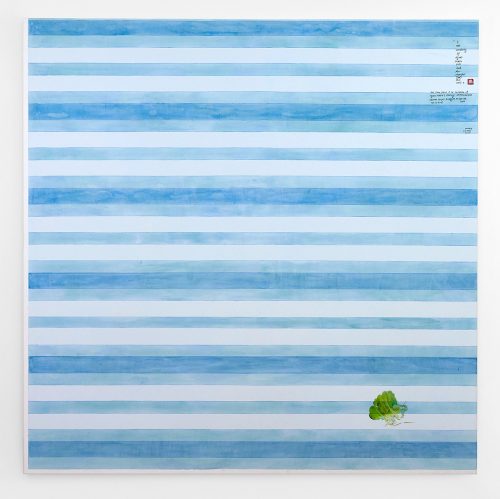
Evelyn Taocheng Wang, Mini Shanghai Pak Choi with Toothpick on Imitation of Agnes Martin, 2022
Pencil of colour, graphite, artist seals and acrylic on linen canvas
185 x 185 cm作品信息Information -
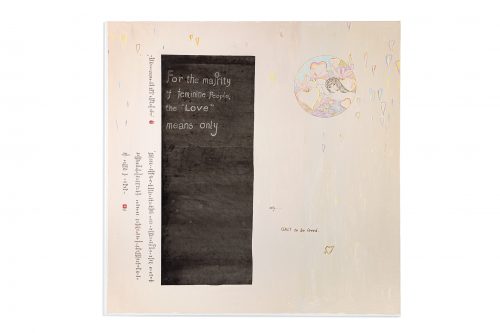
Evelyn Taocheng Wang, Love Mean Only to be Loved, 2023
China ink in ripe xuan paper, mounted on raw xuan paper, book binding glue, color gesso, acrylic color on linen canvas
185 x 185 x 2 cm作品信息Information -
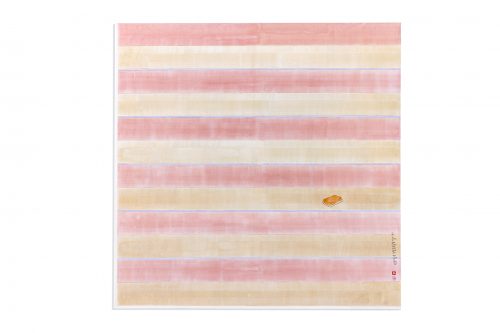
Evelyn Taocheng Wang, Sulphur Soap and Imitation of Agnes Martin, 2023
China ink, acrylic color, graphite, pencil on linen canvas
185 x 185 x 2 cm作品信息Information -
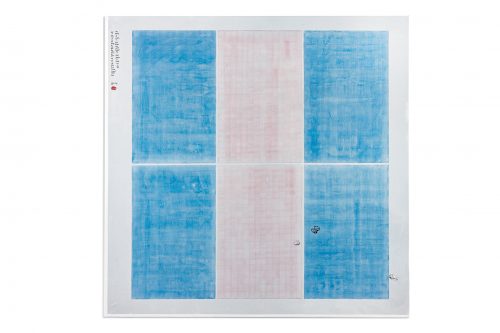
Evelyn Taocheng Wang, Quail Eggs and Imitation of Agnes Martin, 2023
China ink, acrylic color, graphite, color gesso, color pencil and pencil on linen canvas
185 x 185 x 2 cm作品信息Information -
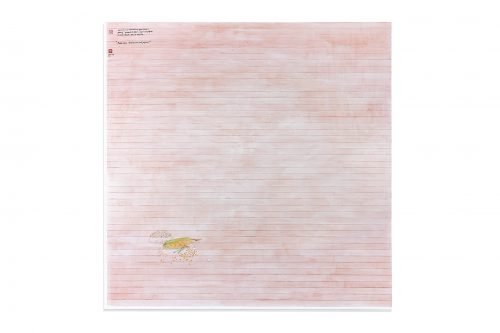
Evelyn Taocheng Wang, Three Stage of a Corn Life and Imitation of Agnes Martin, 2023
Acrylic, color gesso, China ink, color pencil, graphite on linen canvas
185 x 185 x 2 cm作品信息Information -
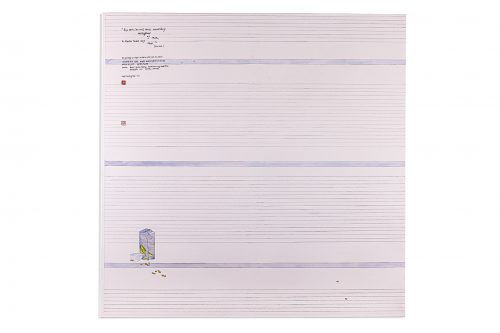
Evelyn Taocheng Wang, Soymilk and Imitation of Agnes Martin, 2022
China ink, acrylic color, color gesso, color pencil on linen canvas
185 x 185 x 2 cm作品信息Information -
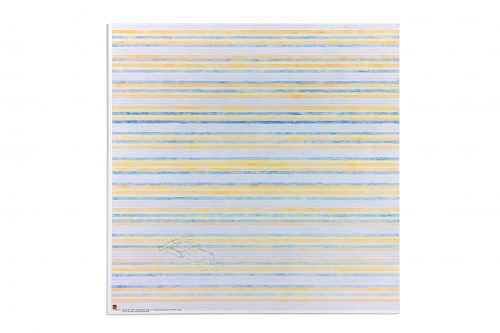
Evelyn Taocheng Wang, Silk Shaw and Imitation of Agnes Martin, 2022
China ink, acrylic color, graphite, color gesso, color pencil and pencil on linen canvas
185 x 185 x 2 cm作品信息Information -
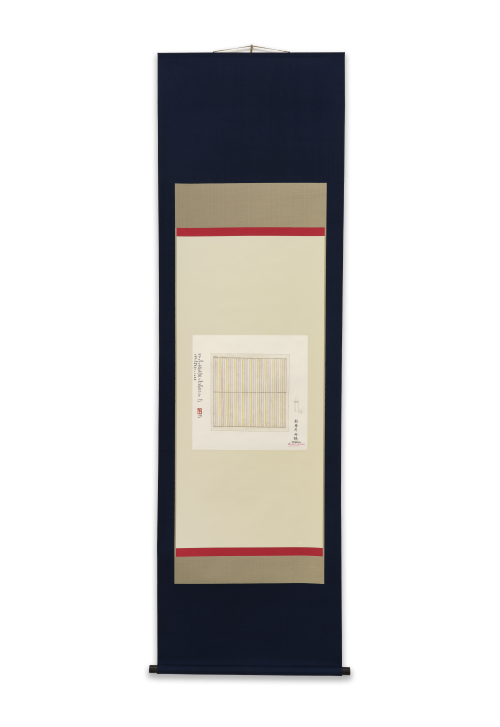
Evelyn Taocheng Wang, Tangee Lipstick and Imitation of Agnes Martin, 2023
China ink, mineral color, pencil on ripe xuan paper
42.4 x 42.4 cm作品信息Information -
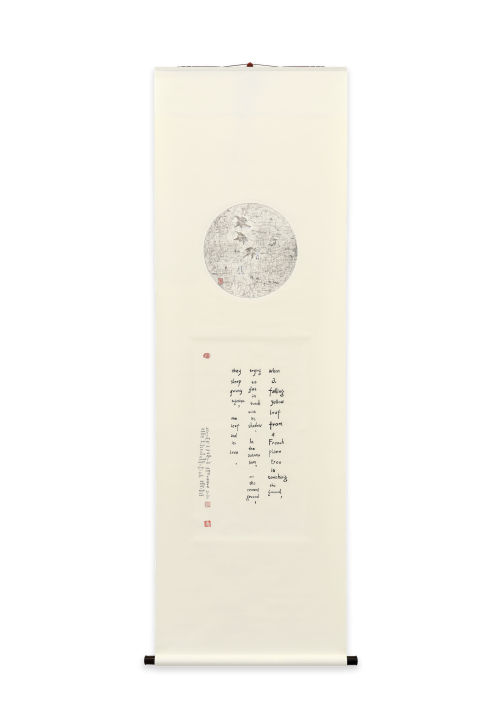
Evelyn Taocheng Wang, French Plane Tree and Its Love, 2022/23
China ink, mineral color, pencil on ripe xuan paper
Circle piece diameter 38.5 cm
Lower part of poem 80 x 45 cm作品信息Information -
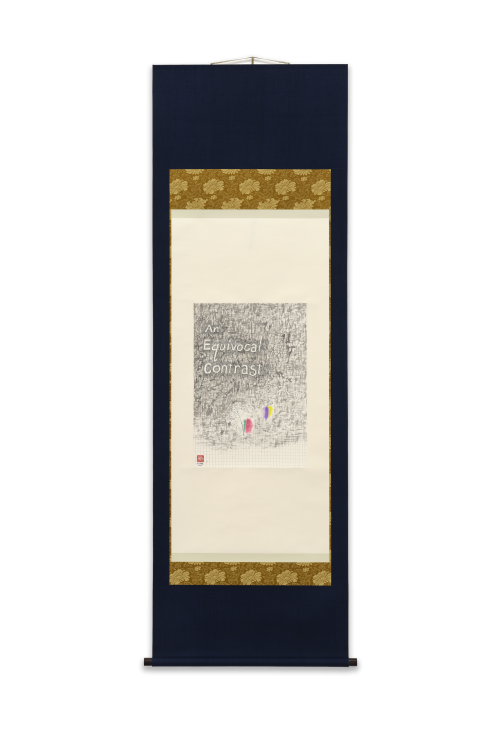
Evelyn Taocheng Wang, An Equivocal Contrast, 2023
China ink, mineral color, pencil on raw xuan paper
57.7 x 39.5 cm作品信息Information -
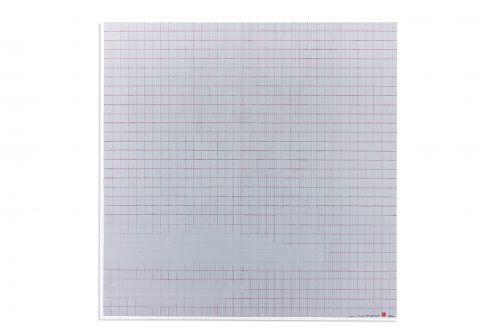
Evelyn Taocheng Wang, Morning Mist, 2023
China ink, graphite, color gesso, color pencil and pencil on linen canvas
185 x 185 x 2 cm作品信息Information -
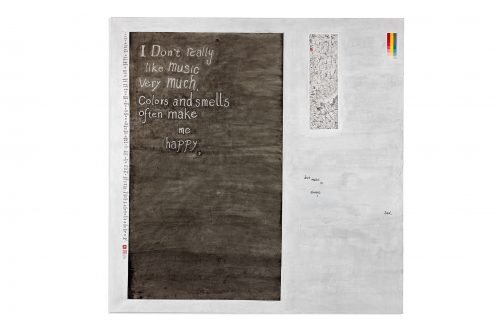
Evelyn Taocheng Wang, On Music, 2023
China ink on ripe and raw xuan paper, mounted on raw xuan paper, book binding glue, acrylic color, gesso on linen canvas
185 x 185 x 2 cm作品信息Information -
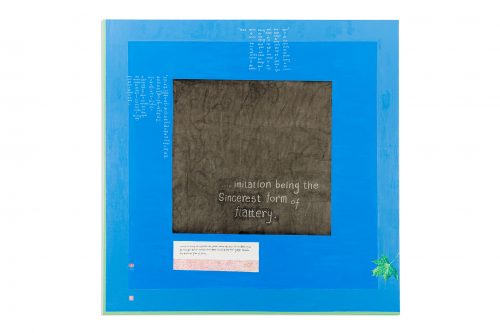
Evelyn Taocheng Wang, Changing Cloth, 2023
Oil color, China ink, ripe xuan paper mounted on raw xuan paper, book binding glue on linen canvas
185 x 185 x 2 cm作品信息Information -
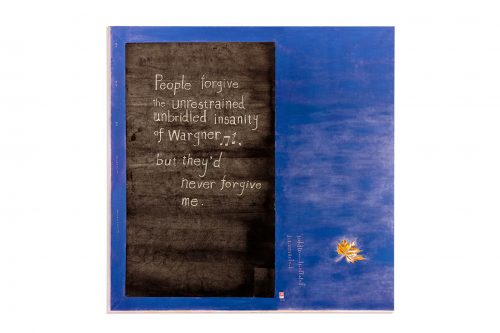
Evelyn Taocheng Wang, The Dream of Being a Genius, 2023
Oil color, China ink, ripe xuan paper mounted on raw xuan paper, book binding glue on linen canvas
185 x 185 x 2 cm作品信息Information -
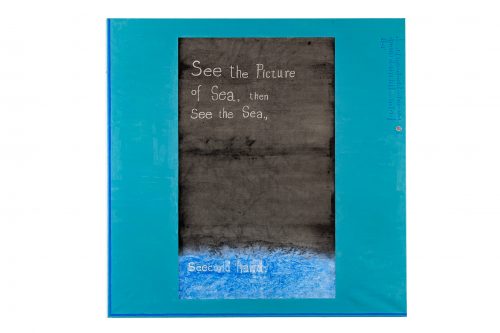
Evelyn Taocheng Wang, The Second-Hand Experience, 2023
China ink on ripe xuan paper, mounted on raw xuan paper, book binding glue, oil color on linen canvas
185 x 185 x 2 cm作品信息Information -
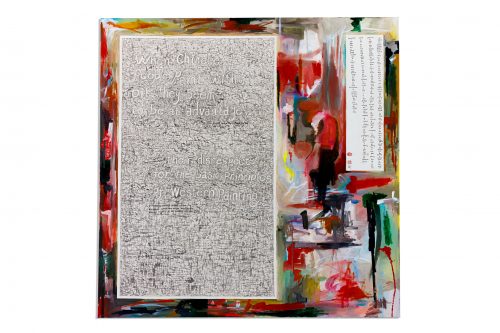
Evelyn Taocheng Wang, Unforgettable Painting, 2023
China ink on raw xuan paper, mounted on raw xuan paper, book binding glue, oil color on linen canvas
185 x 185 x 2 cm作品信息Information -
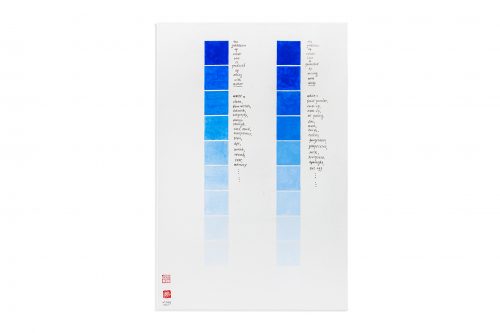
Evelyn Taocheng Wang, A Pair of Sound, 2023
Pencil, gesso, acrylic color on linen canvas
90 x 60 x 2 cm作品信息Information -
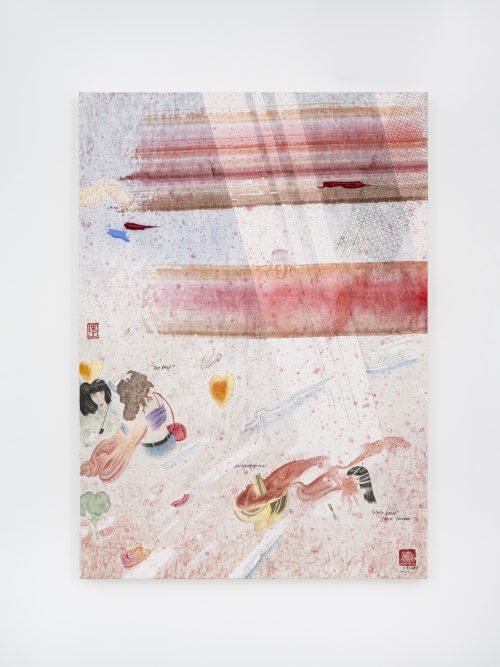
Evelyn Taocheng Wang, Two Female Customers Fights in Hotpot Restaurant, 2022
China Ink, mineral color, acrylic on calligraphy paper, mounted onto wooden panel (fusuma-e)
70 x 50 x 4 cm作品信息Information -
![Evelyn Taocheng Wang, The Book that has no Pictures and Conversations [Alice in Wonderland Series], 2022-2023 Evelyn Taocheng Wang, The Book that has no Pictures and Conversations [Alice in Wonderland Series], 2022-2023](http://files.antenna-space.com/2023/03/CI-ETW-0126-DKG-300-500x667.jpg)
Evelyn Taocheng Wang, The Book that has no Pictures and Conversations [Alice in Wonderland Series], 2022-2023
Japanese ink, mineral colour, calligraphy paper, oil colour, pencil, acrylic colour, dust, book-binding-glue, on linen canvas
200 x 200 x 2 cm作品信息Information -
![Evelyn Taocheng Wang, Necessity and Sufficiency [Alice in Wonderland Series], 2022 Evelyn Taocheng Wang, Necessity and Sufficiency [Alice in Wonderland Series], 2022](http://files.antenna-space.com/2023/03/CI-ETW-0125-DKG-300-500x667.jpg)
Evelyn Taocheng Wang, Necessity and Sufficiency [Alice in Wonderland Series], 2022
Japanese ink, mineral colour, calligraphy paper, pencil, acrylic colour, dust, book-binding-glue, on linen canvas
200 x 200 x 2 cm作品信息Information -
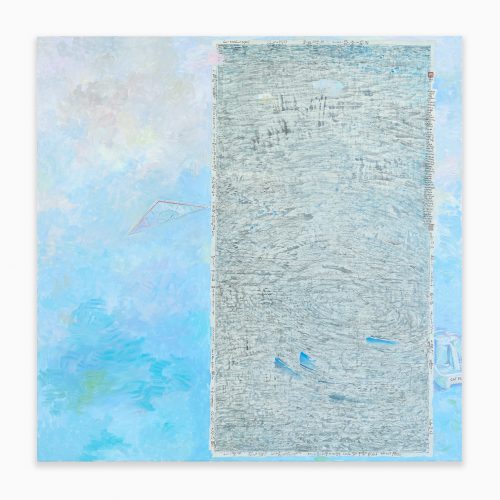
Evelyn Taocheng Wang, Cover up wrinkles and scars? Alice would never use the same foundation as the Red Heart Queen!, 2022
Gesso, acrylic, color pencil, China ink, mineral color, paper, artist seals on linen canvas
185 x 185 cm作品信息Information -
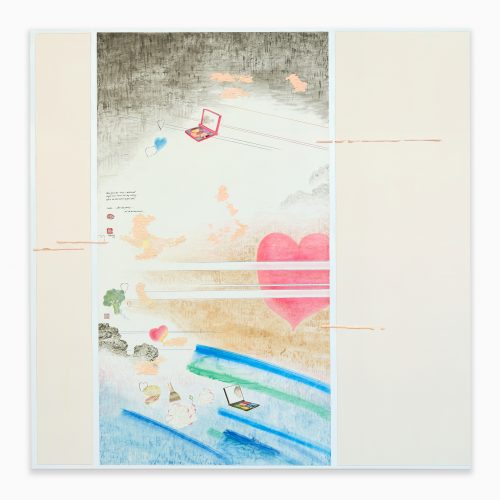
Evelyn Taocheng Wang, Tears Sea of Alice/from Alice in Wonderland, 2022
Acrylic, glue, pencil, China ink, mineral colors, artist seals on linen canvas
185 x 185 cm作品信息Information -
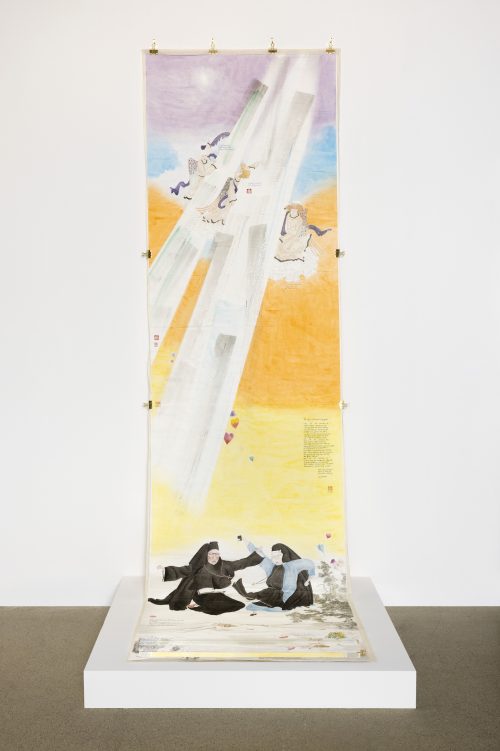
Evelyn Taocheng Wang, Sisters Breaks Men’s Wear Luxury Watch in a Very Sunny Day, 2022
Ink, mineral colour, metallic colour, tea water, and artist’s seal on paper
354.5 x 97.5 cm作品信息Information -
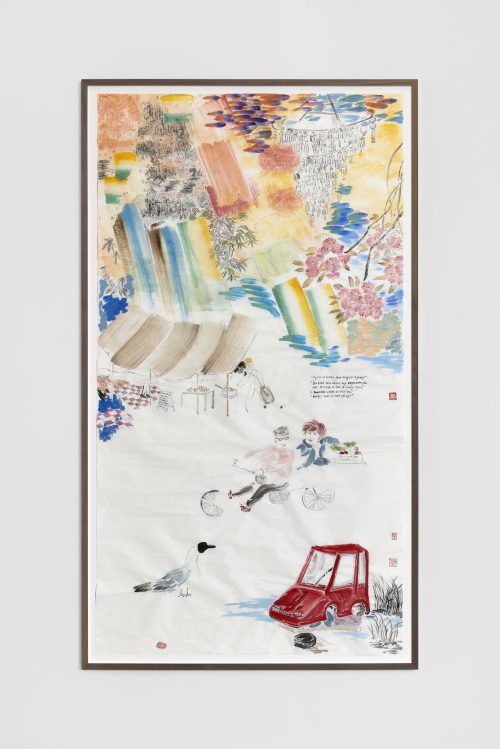
Evelyn Taocheng Wang, Crispy Granny Love 2, 2022
Ink, mineral color, pencil, acrylic, tea and glue on old wrinkled paper
180.5 x 97 cm作品信息Information -
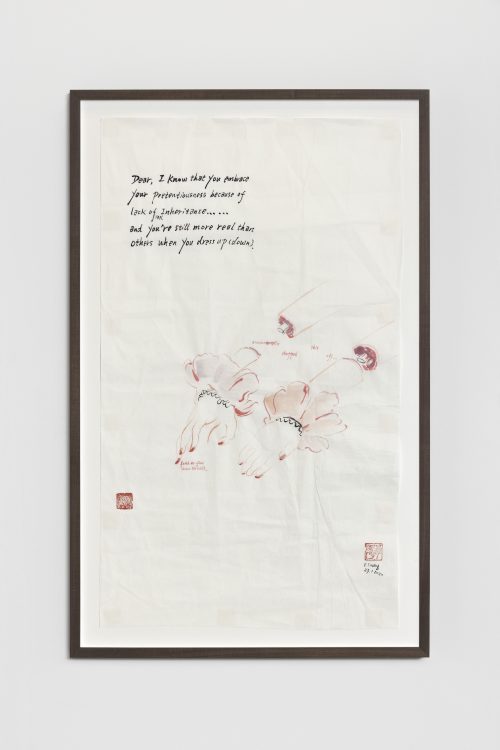
Evelyn Taocheng Wang, Cultural Inheritance, 2022
Ink and mineral color, artist seal on old calligraphy paper
74 x 44 cm作品信息Information -

Evelyn Taocheng Wang, Hand Scroll of 23 Hearts, 2021
Ink and mineral color, artist’s seals Turtle Move, Tulip, No Matter What, and E.T.Evelyn on paper
1086 x 48 cm作品信息Information -

Evelyn Taocheng Wang, Handscroll of Heinemann in Eyeshadow, 2021
Ink and mineral color, artist’s seals Turtle of Move, Tulip, No Matter What, and E.T.Evelyn on paper
896 x 48 cm作品信息Information -

Evelyn Taocheng Wang, Hand scroll of Balsamine and Southern Garden Parrots in Cosmetics of Eyeshadow, 2021
Ink and mineral color, artist’s seals Turtle of Move, Tulip, No Matter What, and E.T.Evelyn on paper
1086 x 48 cm作品信息Information -

Evelyn Taocheng Wang, Hand scroll of Heart of Feelings, 2021
Ink and mineral color, artist’s seals Turtle Move, Tulip, No Matter What, and E.T.Evelyn on paper
1086 x 48 cm作品信息Information -

Evelyn Taocheng Wang, The Light Decoration of Christmas in South Rotterdam, 2021
Ink and mineral color, artist’s seals Turtle Move, Tulip, No Matter What, and E.T.Evelyn on paper
850 x 48 cm作品信息Information -
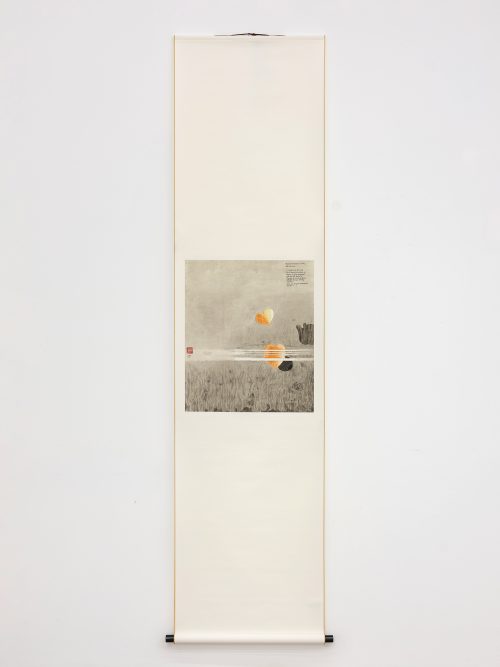
Evelyn Taocheng Wang, Little Heart Flower, 2021
Ink, pencil and mineral color, artist’s seal of Turtle Move on paper
50 x 60 cm作品信息Information -
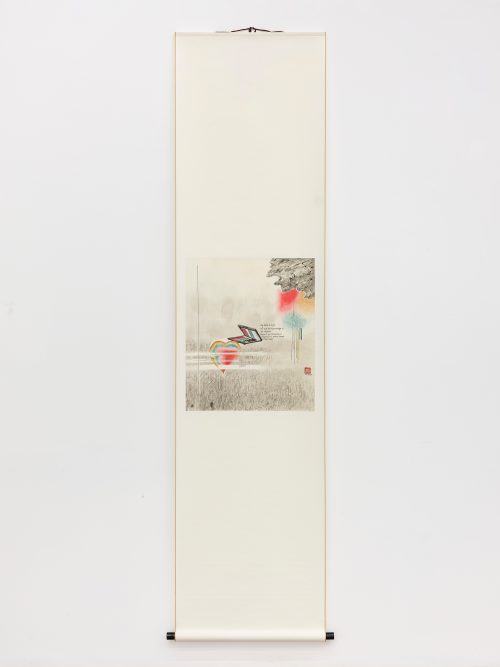
Evelyn Taocheng Wang, Hearts and Diamond Eyeshadow, 2021
Ink, pencil and mineral color, artist’s seal of Turtle Move on paper
50 x 60 cm作品信息Information -
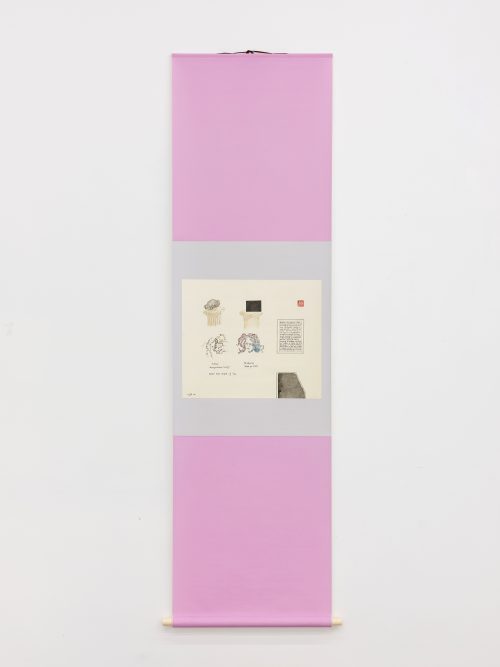
Evelyn Taocheng Wang, Two Hearts and One Legend (Hair of Eyeshadow), 2021
Ink, pencil and mineral color, artist’s seal of Turtle Move on paper
55 x 47 cm作品信息Information -
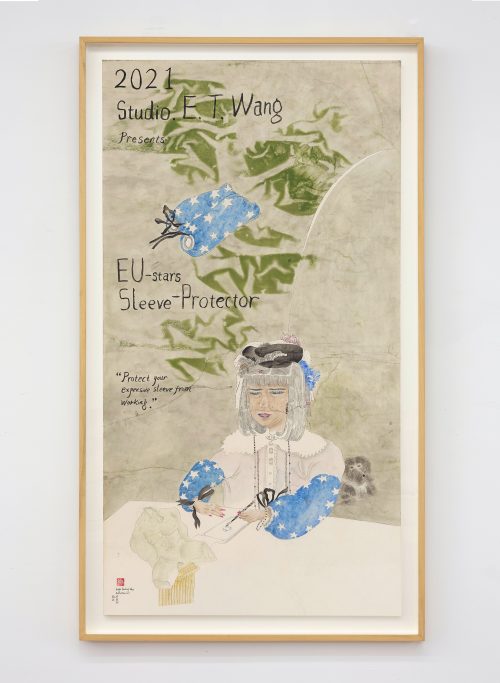
Evelyn Taocheng Wang, EU-Star Sleeve Protector Poster, 2021
Ink, mineral color, tape paper, glue, artist stamp of Turtle Move on paper
186 x 87 cm作品信息Information -
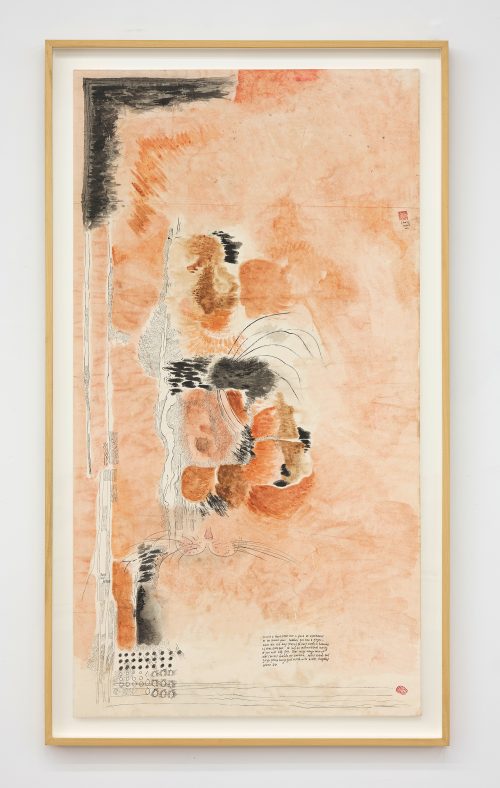
Evelyn Taocheng Wang, The Heart of Cat Beard, 2021
Ink, mineral color, acrylic, tape paper, glue, artist stamp of Turtle Move, E.T.Evelyn on paper
186 x 87 cm作品信息Information -
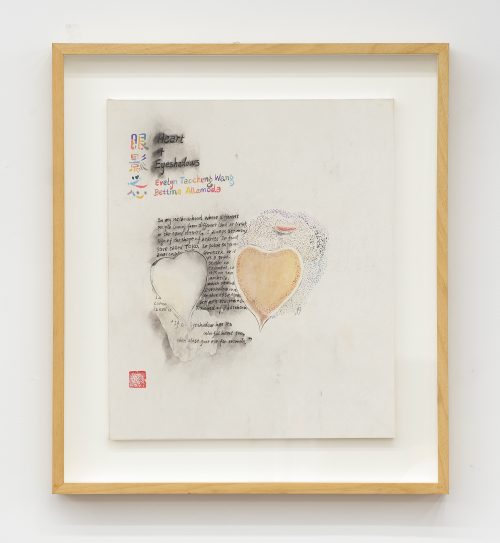
Evelyn Taocheng Wang, POSTER, 2021
Ink, mineral color and artist’s seal of Turtle Move on paper
40 x 48 cm作品信息Information -
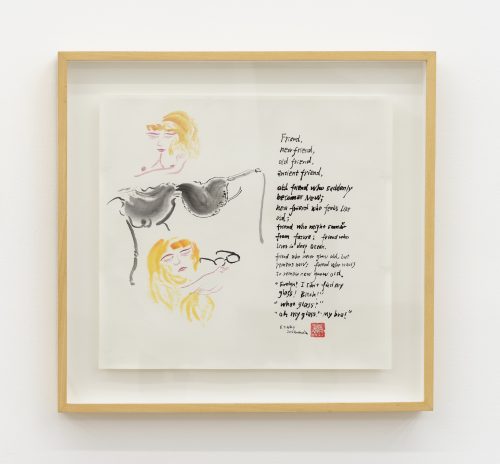
Evelyn Taocheng Wang, Glasses, 2021
Ink on Paper
48 x 45 cm作品信息Information -
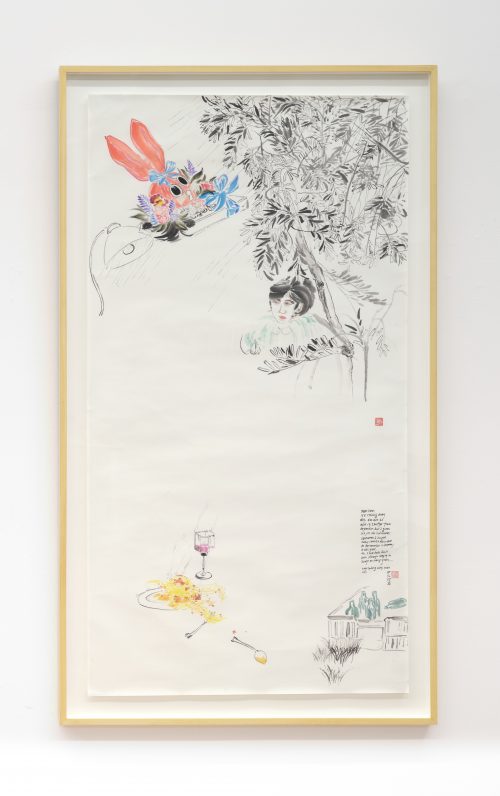
Evelyn Taocheng Wang, Pasta Ruin and Rabbit Chocolate, 2021
Ink and color on paper
197 x 98 cm; 114 x 199 cm (with frame)作品信息Information -
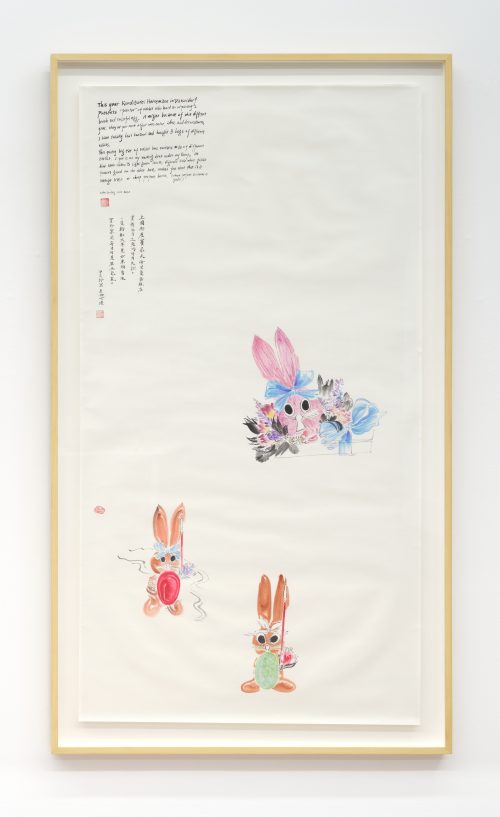
Evelyn Taocheng Wang, Eastern Chocolates, 2021
Ink and color on paper
197 x 98 cm; 114 x 199 cm (with frame)作品信息Information -
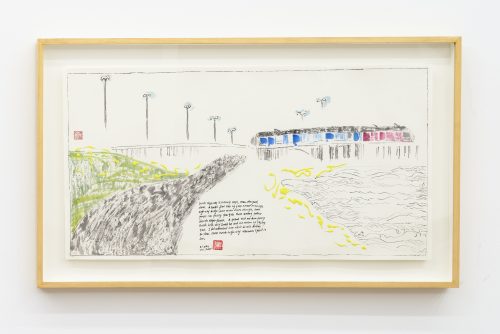
Evelyn Taocheng Wang, Dutch Highway, 2021
Ink, Acrylic, Mineral Color on Paper
90 x 48 cm作品信息Information -
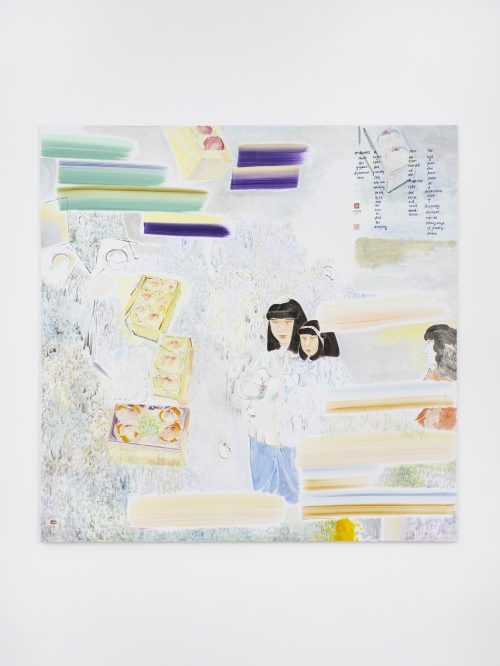
Evelyn Taocheng Wang, Self Portraits with Roppongi Peach, 2020
Self Portraits with Roppongi Peach, 2022 Oil color, graphite, papercut on linen canvas
200 x 200 x 2 cm作品信息Information -
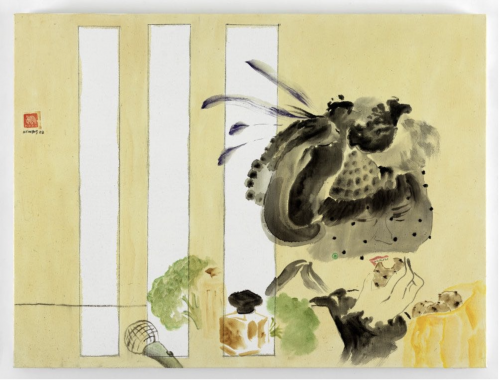
Evelyn Taocheng Wang, Untitled, 2020
Oil, pencil on linen canvas
60 x 80 cm作品信息Information -
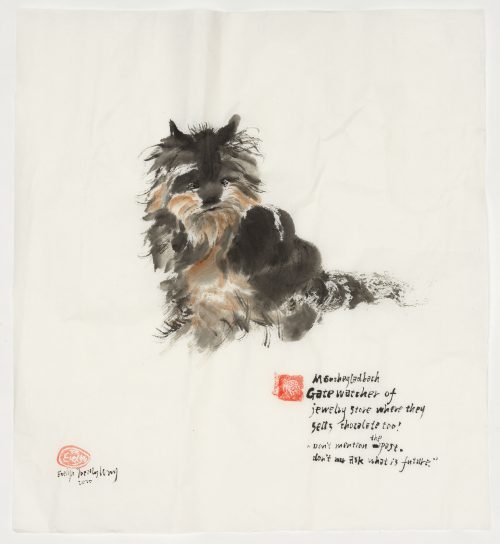
Evelyn Taocheng Wang, MG PAINTINGS, NO.7, 2020
Ink, Mineral Color on Paper
48.5 x 45 cm作品信息Information -
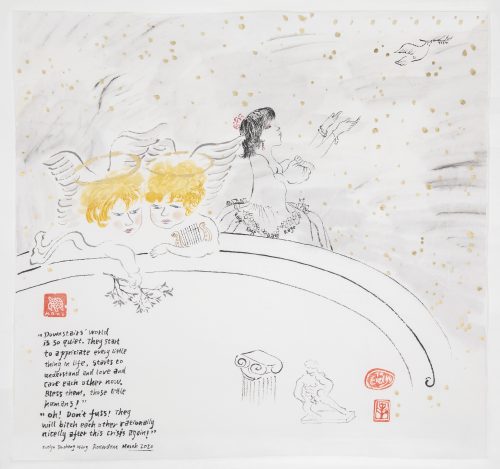
Evelyn Taocheng Wang, Mortal World, 2020
Ink, Mineral Color on Paper
47 x 47 cm作品信息Information -
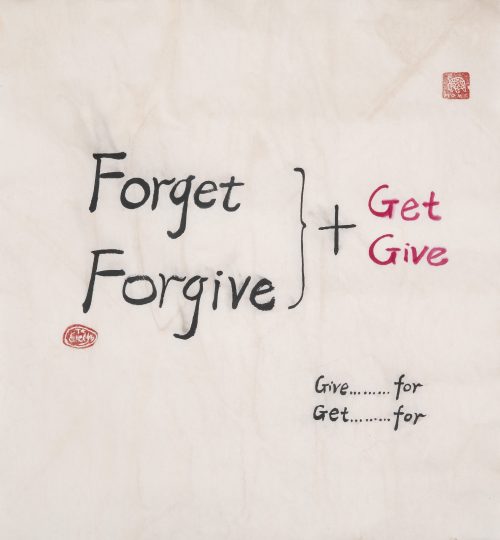
Evelyn Taocheng Wang, Forgiveget, 2020
Ink, Mineral Color on Paper
47 x 47 cm作品信息Information -

Evelyn Taocheng Wang, Were you there too?, 2020
Songyan Ink, Mineral Color and Artist’s Seals on Paper
97 x 47 cm作品信息Information -
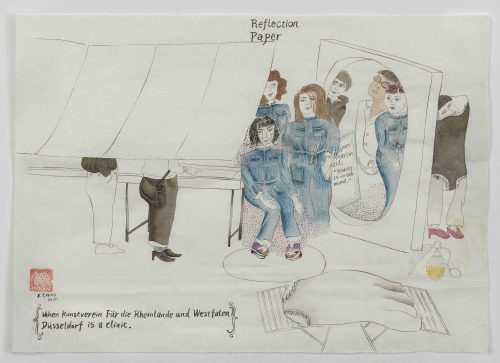
Evelyn Taocheng Wang, Clinic Sis, 2020
Ink, Mineral Color and Pencil on Paper
48.5 x 35.5 cm作品信息Information -
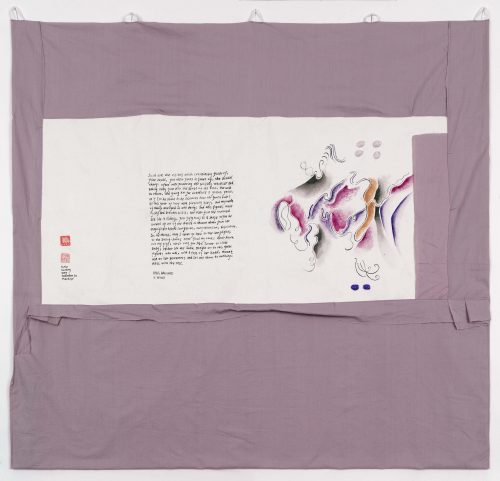
Evelyn Taocheng Wang, Copy of Mrs. Dalloway, 2020
Ink, watercolor, acrylic on paper, mounted on cotton fabric, sewed on cotton light purple fabric
106 x 112 cm作品信息Information -
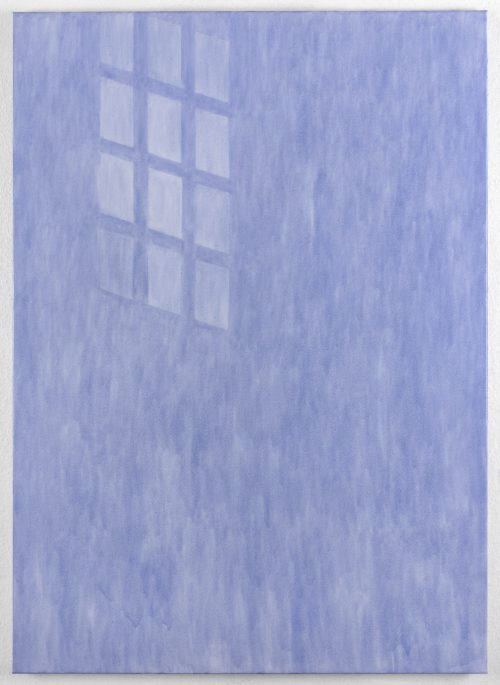
Evelyn Taocheng Wang, Dutch Window No.2 / 7 Layers, 2020
Oil on Canvas
100 x 140 cm作品信息Information -
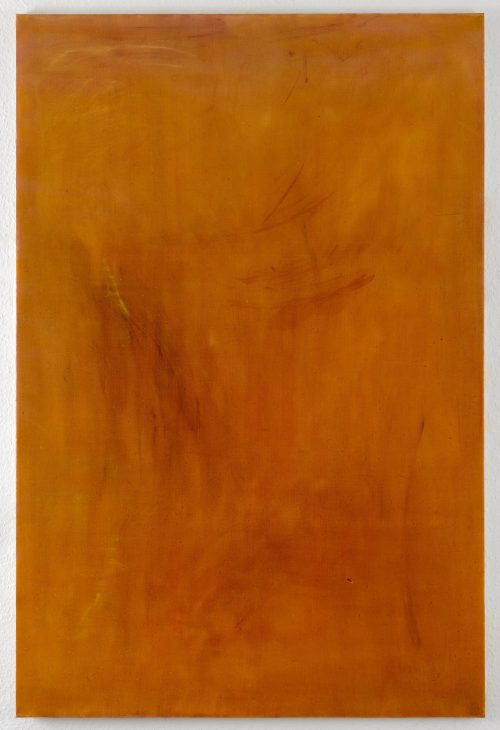
Evelyn Taocheng Wang, Dutch Window No.3 / 6 Layers, 2020
Oil on canvas
100 x 150 cm作品信息Information -
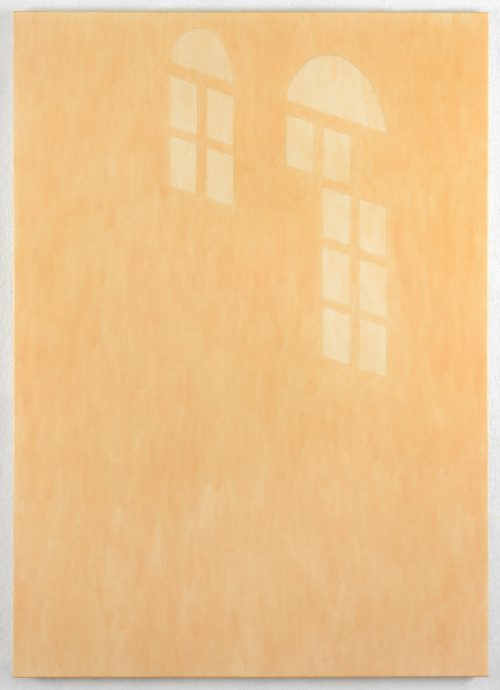
Evelyn Taocheng Wang, Dutch Window No.4 / 7 Layers, 2020
Oil on Canvas
100 x 140 cm作品信息Information -
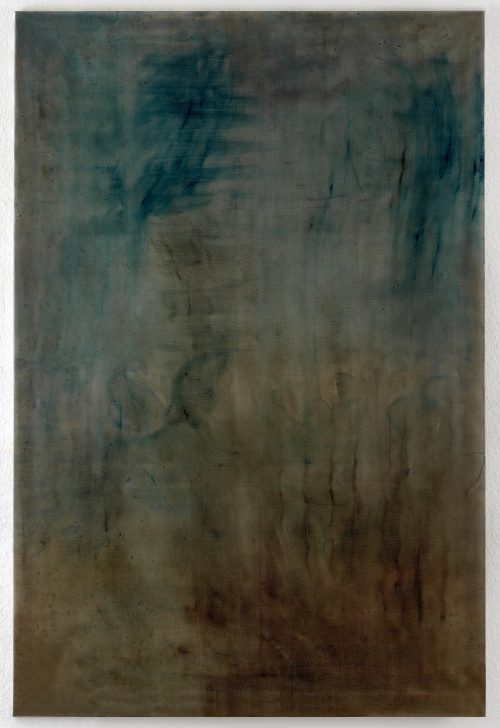
Evelyn Taocheng Wang, Dutch Window No.7 / 4 Layers, 2020
Oil on Canvas
100 x 150 cm作品信息Information -
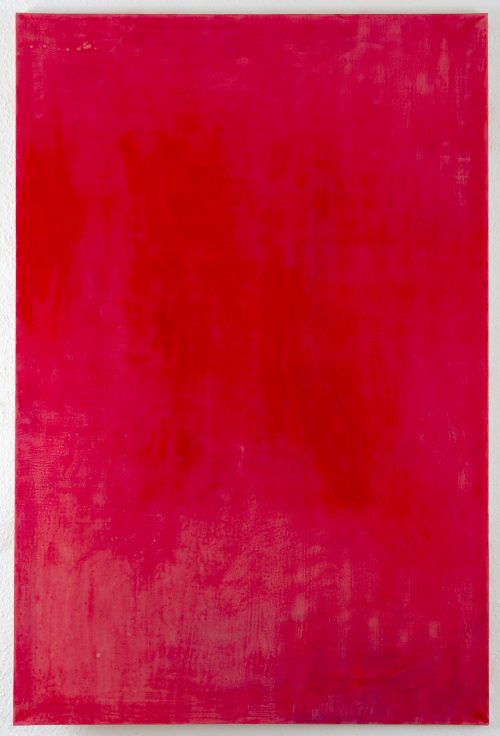
Evelyn Taocheng Wang, Dutch Window No.8 / 4 Layers, 2020
Oil on canvas
100 x 150 cm作品信息Information -
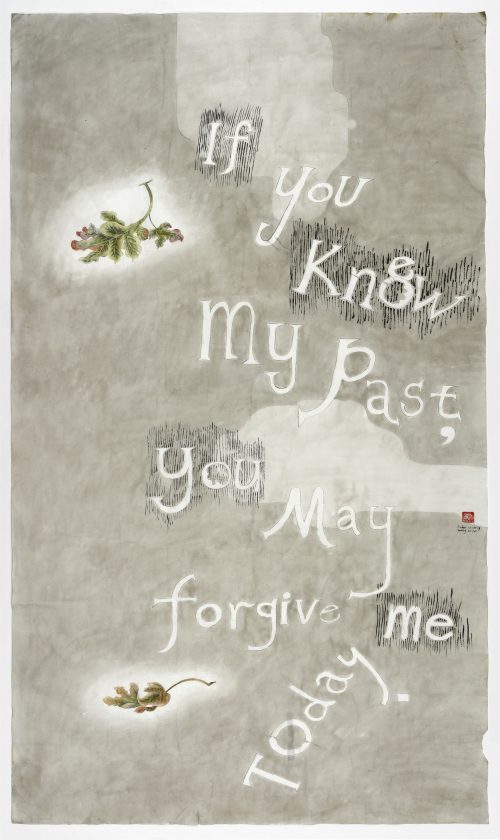
Evelyn Taocheng Wang, False Poster, 2020
Ink, mineral color, pencil on paper
180 x 97 cm作品信息Information -
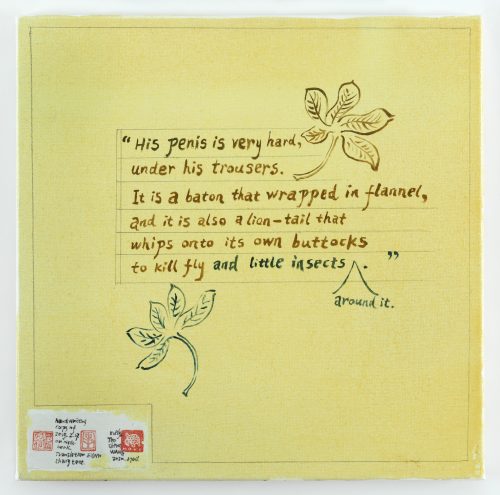
Evelyn Taocheng Wang, Untitled, 2020
Oil and pencil on linen
50 x 50 cm作品信息Information -
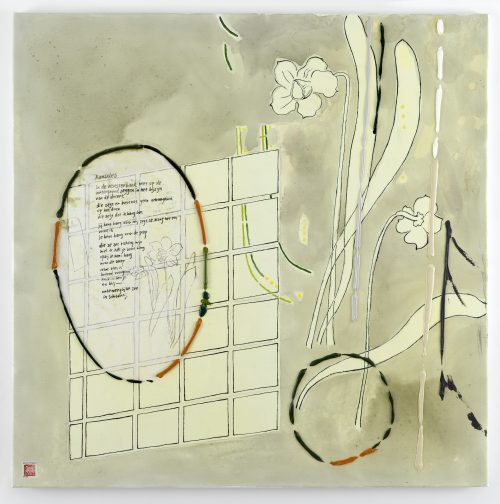
Evelyn Taocheng Wang, Dutch Window and Spring, 2020
Acrylic, rice paper, ink, glue, graphite on canvas
100 x 100 cm作品信息Information -
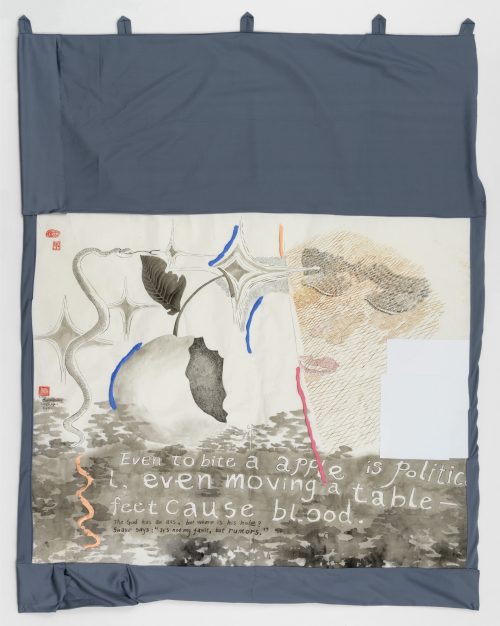
Evelyn Taocheng Wang, False Poster Banner, 2020
Ink, mineral color, cotton, silk blend fabric, rice paper
158 x 100 cm; 165 x 107 cm (Framed)作品信息Information -

Evelyn Taocheng Wang, Withes are Flower Sis, 2020
Ink, watercolor, acrylic, pencil on paper
48.7 x 800 cm作品信息Information -
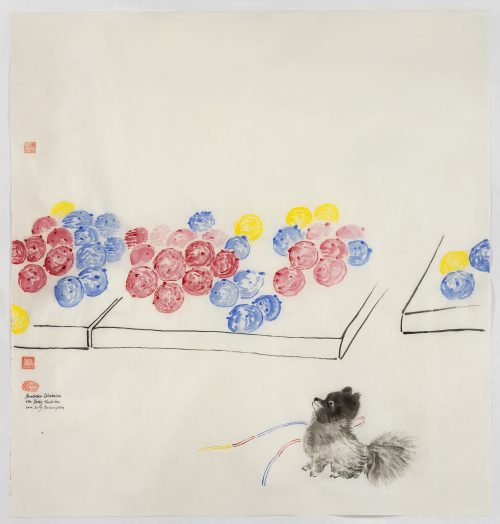
Evelyn Taocheng Wang, OllieBolly! OllieBolly! ( Mondriaan Oliebollen of Trashy Mondriaan), 2020
Acrylic, ink, watercolor on paper
98 x 89 cm作品信息Information -
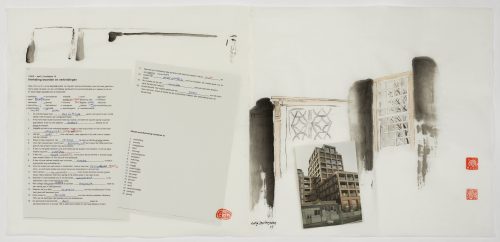
Evelyn Taocheng Wang, Sayings of Picked-Up (Spring Window of Hermitage), No. 5, 2020
Ink and watercolor on paper, digital print, clips
96 x 45 cm作品信息Information -
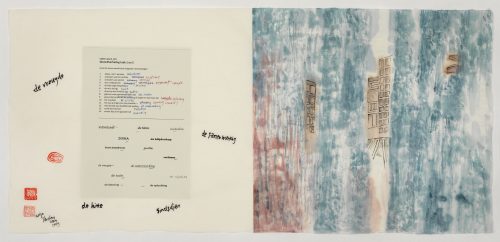
Evelyn Taocheng Wang, Sayings of Picked-Up, No.2, 2019
Ink on paper, digital prints
96 x 45 cm作品信息Information -
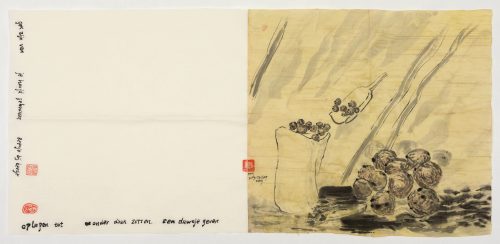
Evelyn Taocheng Wang, Sayings of Picked-Up (Best Oliebollen from Rotterdam), No.3, 2020
Ink and watercolor on paper
96 x 45 cm作品信息Information -
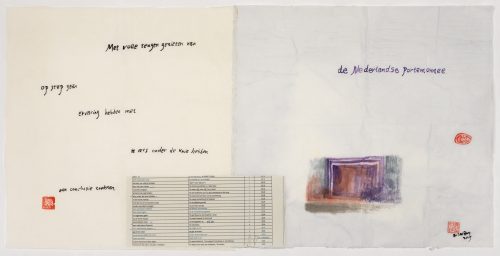
Evelyn Taocheng Wang, Sayings of Picked-Up (Dutch Wallet), No.4, 2020
Ink and watercolor on paper, digital print, clips
91 x 46 cm作品信息Information -
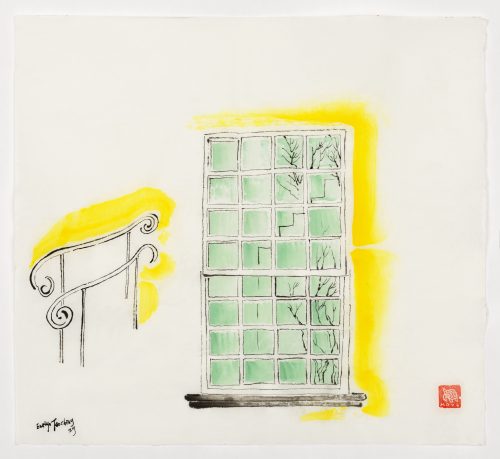
Evelyn Taocheng Wang, Sayings of Picked-Up (Window of Hermitage), No.6, 2019
Ink and watercolor on paper
48 x 45 cm作品信息Information -
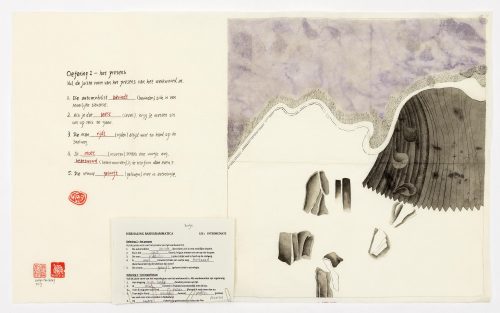
Evelyn Taocheng Wang, Sayings of Picked-Up, No.7, 2019
Ink and watercolor on paper, digital print, clips
83 x 44.5 cm作品信息Information -
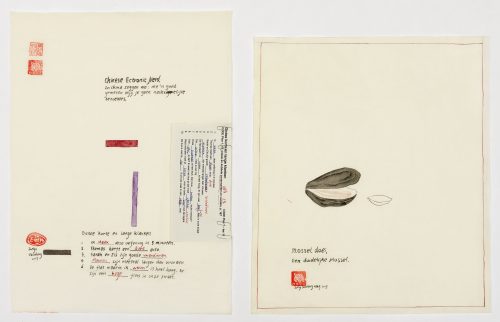
Evelyn Taocheng Wang, Sayings of Picked-Up (Mosssssel!), No.8, 2019
Ink and watercolor on paper, digital print, clips
Left: 44 x 38 cm ; Right: 35.5 x 48 cm
Between space is depended by the size and space of table.作品信息Information -
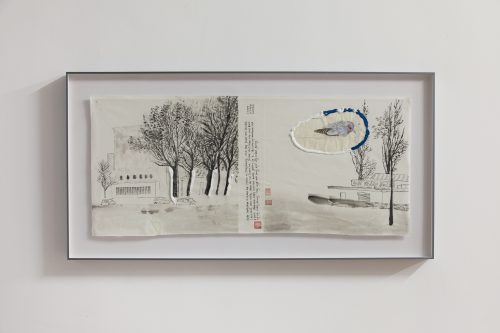
Evelyn Taocheng Wang, Eight View of Oud-Charlois, No.7, 2019
Ink, acrylic on paper
46 × 104 cm
2019作品信息Information -
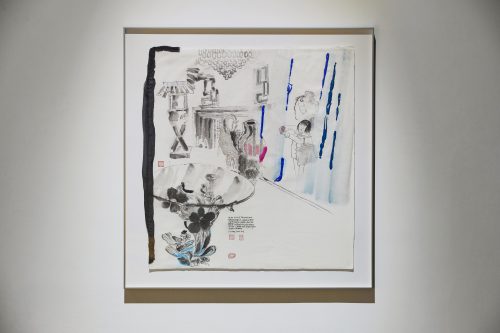
Evelyn Taocheng Wang, Eight View of Oud-Charlois, No.5, 2019
Ink, acrylic, fabric, on paper
93 × 88 cm作品信息Information -
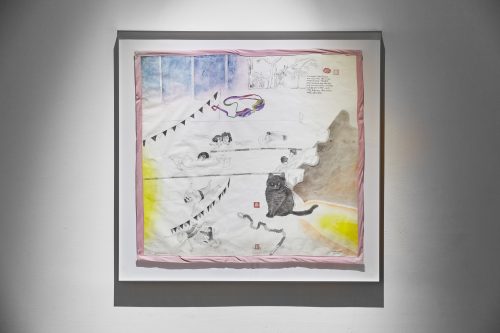
Evelyn Taocheng Wang, Eight View of Oud-Charlois, No.3, 2019
Ink, acrylic, fabric, on paper
91 × 96 cm
2019作品信息Information -
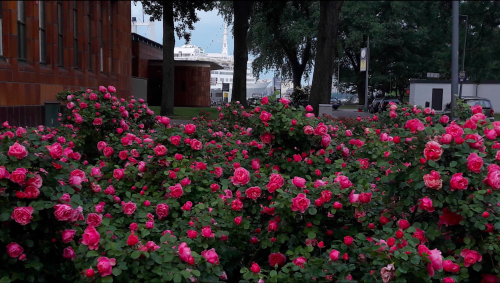
Evelyn Taocheng Wang, Hospital Conversations, 2018
Single-channel video, colour, sound
14’05”作品信息Information -
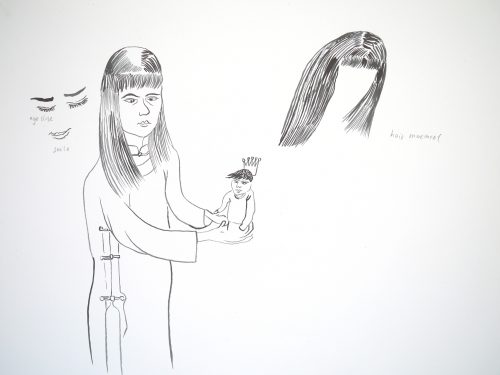
Evelyn Taocheng Wang, Three Versions of Change, 2018
Animated video
13’50”作品信息Information -
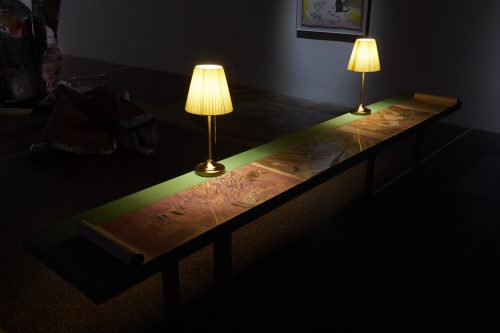
Evelyn Taocheng Wang, Untitled-Platypus, Divisionism, Proletariat, 2013-2014
Ink, pencil, tea, mineral color, flower powder, acrylic color, water color, ink, paper, mounted on japanese rice paper
75 × 340 × 60 cm作品信息Information -
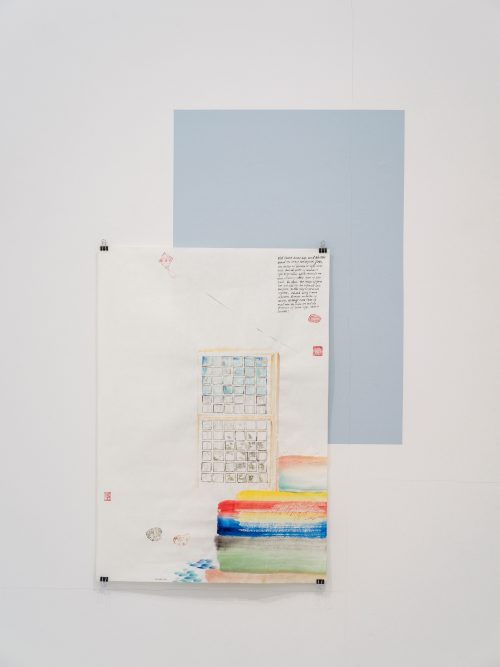
Evelyn Taocheng Wang, Dutch Window and Leaves, 2022
Ink, mineral color, artist’s seals on calligraphy paper
83 x 57.5 cm作品信息Information -
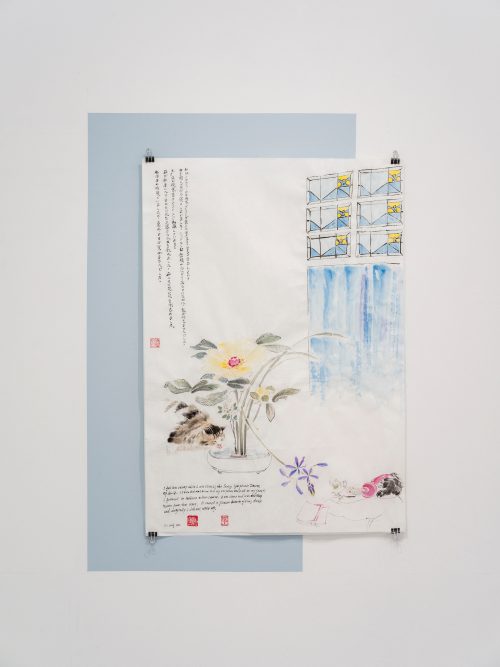
Evelyn Taocheng Wang, Ikebana and Dutch Window, 2022
Ink, mineral color, artist’s seals on calligraphy paper
83 x 57.5 cm作品信息Information -
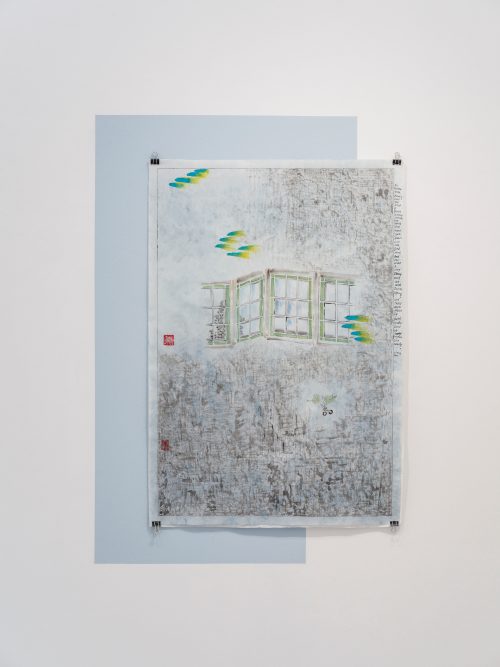
Evelyn Taocheng Wang, Mint Candy and Dutch Window, 2022
Ink, mineral color, artist’s seals on calligraphy paper
83 x 57.5 cm作品信息Information -
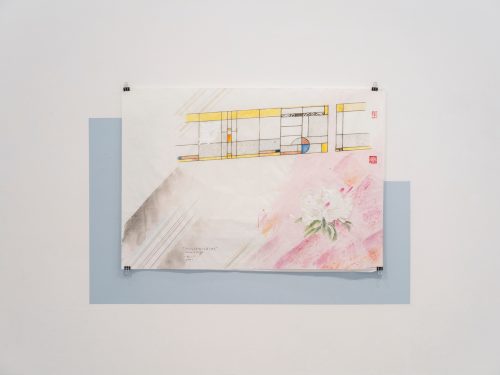
Evelyn Taocheng Wang, Dutch Window and What did You Say?, 2022
Ink, mineral color, acrylic, color pencils, artist’s seals on calligraphy paper
83 x 57.5 cm作品信息Information -
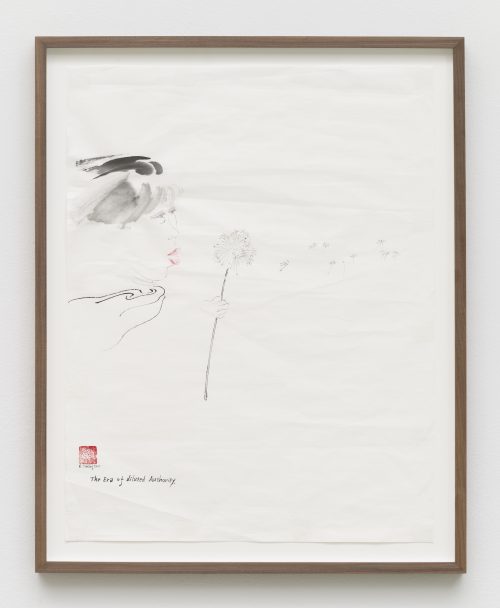
Evelyn Taocheng Wang, Self Portrait of Dandelion Wish, 2022
Ink, mineral colour and artist seal on old calligraphy paper, not mounted
61.5 x 48.5 cm (framed)作品信息Information -
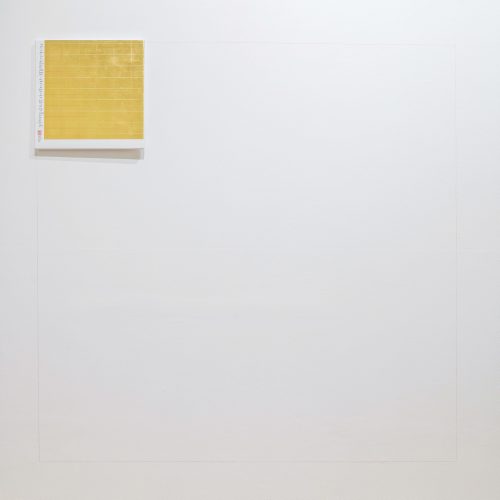
Evelyn Taocheng Wang, 1/16 (One of Sixteenth) of Agnes Martin’s Friendship, 2023
24 Carat pure gold leaves, gesso, acrylic on linen canvas, ink line on wall
50 x 50 x 2 cm作品信息Information -
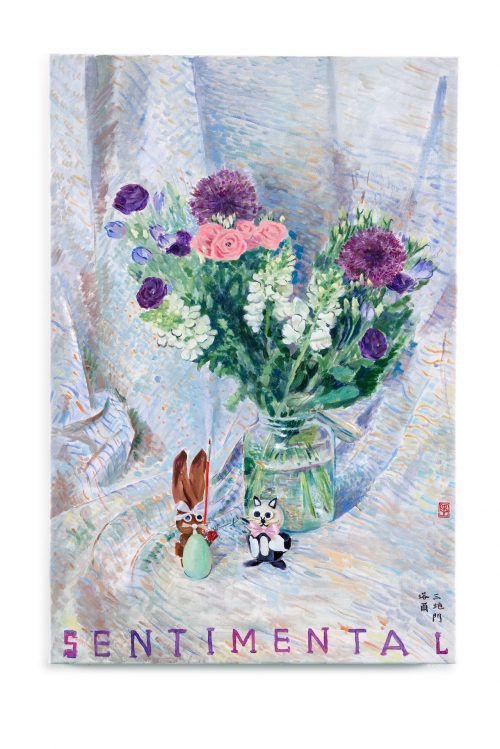
Evelyn Taocheng Wang, The Sentimental of Sumatra Island’s Poet Yu Dafu, 2023
Oil on linen
80 x 60 cm作品信息Information -

Evelyn Taocheng Wang, Oh, you were also here!, 2020
Ink, watercolor, acrylic, pencil on paper
48.7 x 800 cm作品信息Information -

Evelyn Taocheng Wang, Booklet of Bachmann_Lost Leather Shoulder Bag Refund, 2020
Ink, digital ink jet print, glue, acrylic, pencil on raw rice paper
48.7 x 800 cm作品信息Information -

Evelyn Taocheng Wang, Hana no Ko Lunlun, 2020
Ink, digital ink jet print, glue, acrylic, pencil on raw rice paper
48.7 x 800 cm作品信息Information -
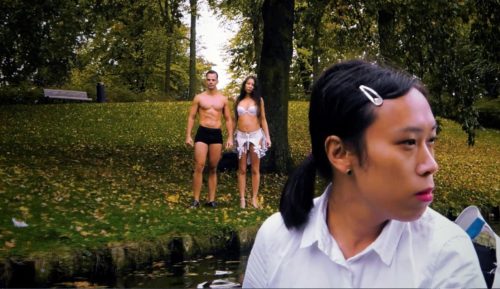
Evelyn Taocheng Wang, Dusk, 2017
Video
12’41”作品信息Information -
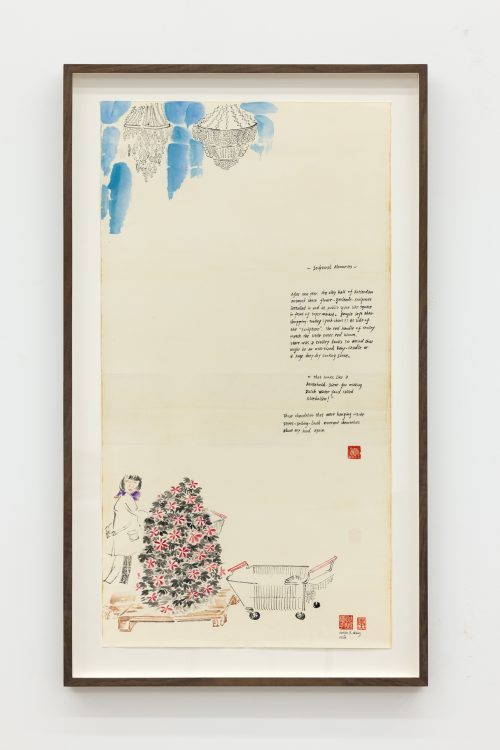
Evelyn Taocheng Wang, Supermarket Shopping Chart and Memory of Chandeliers, 2024
Calligraphy ink and mineral pigment on paper
110 x 67 cm (with framed)作品信息Information -
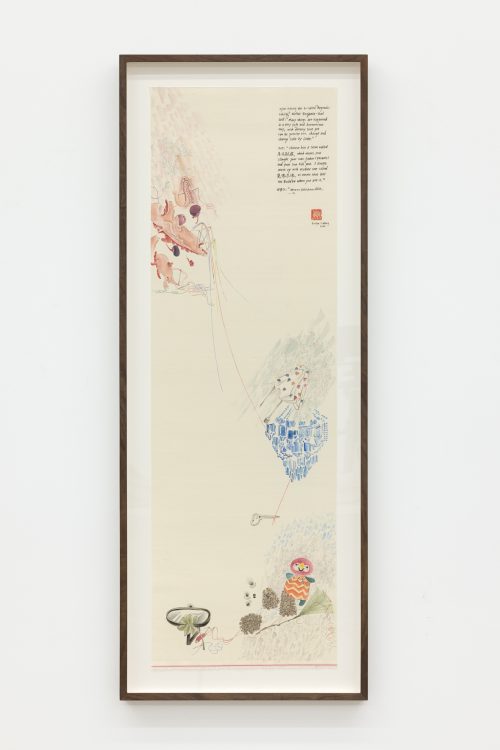
Evelyn Taocheng Wang, Conversion with Benjamin-Owl, 2024
Calligraphy ink and mineral color on silk
138 x 56 cm (with framed)作品信息Information -
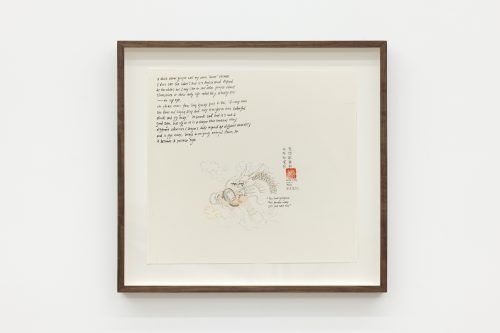
Evelyn Taocheng Wang, It’s your turn, 2024
Calligraphy ink and mineral pigment on paper
49 x 49 cm (with framed)作品信息Information -
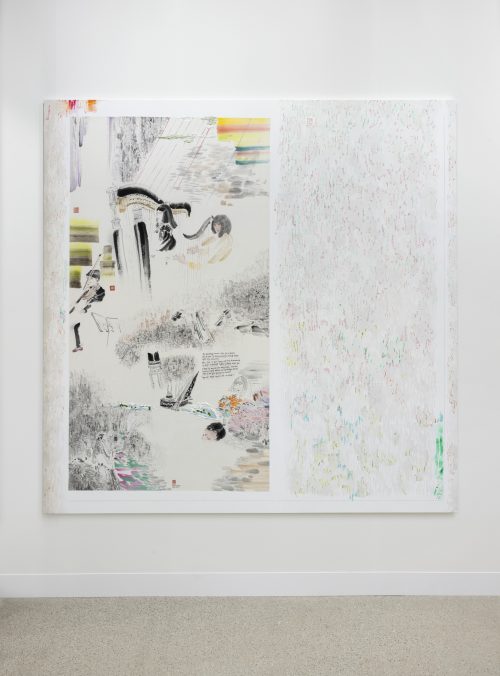
Evelyn Taocheng Wang, The Music of Schrodinger’s Cat, 2024
Calligraphy ink, acrylic color, color pencil, mineral color, mounted with raw,
Xuan Paper, book bounding glue, gesso on linen canvas
200 x 200 x 2.5 cm作品信息Information -
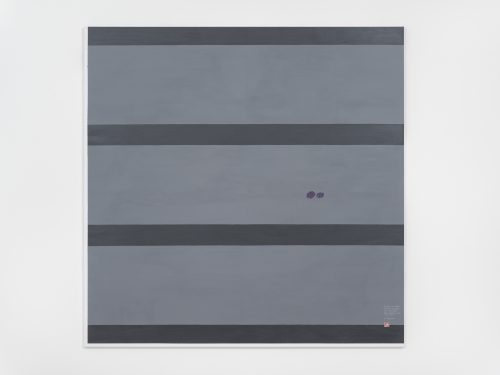
Evelyn Taocheng Wang, Black Berries and Imitation of Agnes Martin, 2023
Calligraphy ink, acrylic, graphite, gesso on linen canvas
185 x 185 x 2.5 cm作品信息Information
Artworks
-
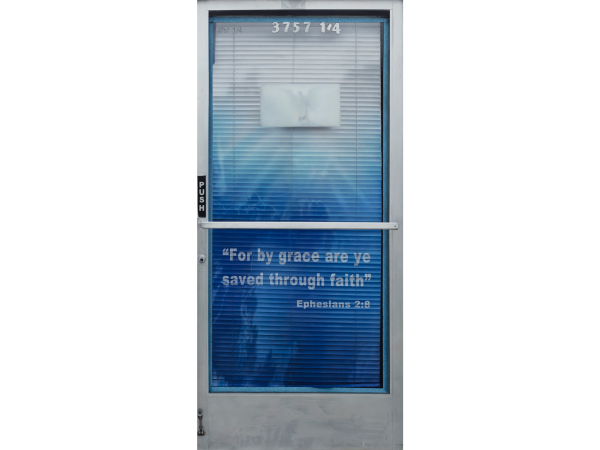
Horizons: Is there anybody out there?
2023.09.16 – 2023.10.25
Curator: Robin Peckham
Participating Artists: Korakrit Arunanondchai, Dora Budor, Hilo Chen, Xinyi Cheng, Cui Jie, Simon Denny, Daniel Dewar & Grégory Gicquel, Buck Ellison, Carolyn Forrester, Owen Fu, Sayre Gomez, Guan Xiao, Han Bing, Tishan Hsu , Frieda Toranzo Jaeger, Allison Katz, KAYA (Kerstin Brätsch & Debo Eilers), Matthew Lutz Kinoy, Josh Kline, Stanislava Kovalcikova, Heidi Lau, Li Ming, Yong Xiang Li, Liu Chuang, Jr-Shin Luo, Nancy Lupo, Mai Zhixiong, Helen Marten, Alexandra Noel, Peng Zuqiang, Tara Walters, Evelyn Taocheng Wang, Xie Nanxing, Joseph Yaeger, Yu Honglei, Yu Peng, Zhao Gang, Zhou Siwei (alphabetically) -
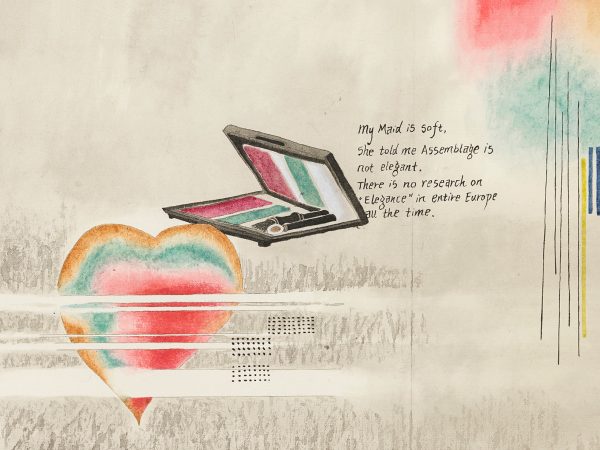
Evelyn Taocheng Wang: Heart of Eyeshadows
2021.09.16 – 2021.10.30
-
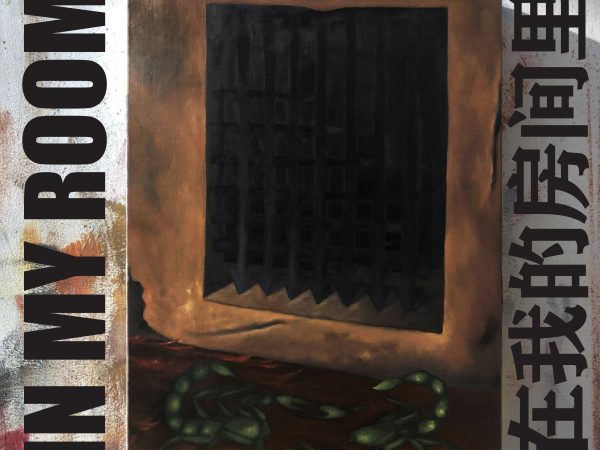
In My Room: Evelyn Taocheng Wang, Lewis Hammond, Tao Hui, Bruno Zhu, Jes Fan, Juan Antonio Olivares
2019.05.24 – 2019.07.07
Curator: Alvin Li
EXHIBITIONS
-
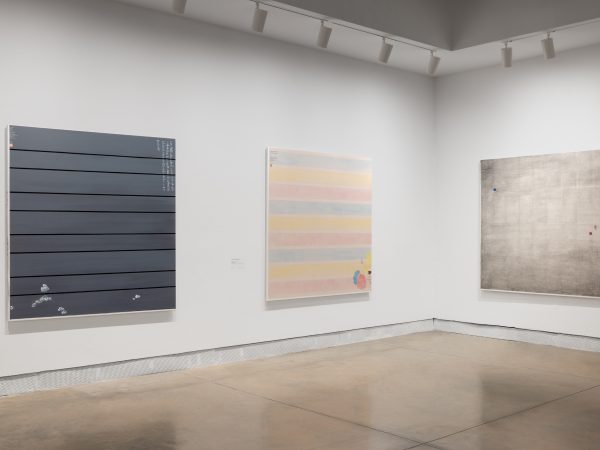
Evelyn Taocheng Wang | the 60th Venice Binnale: Foreigners Everywhere @ Giardini & Arsenale
2024.04.20-2024.11.24
-
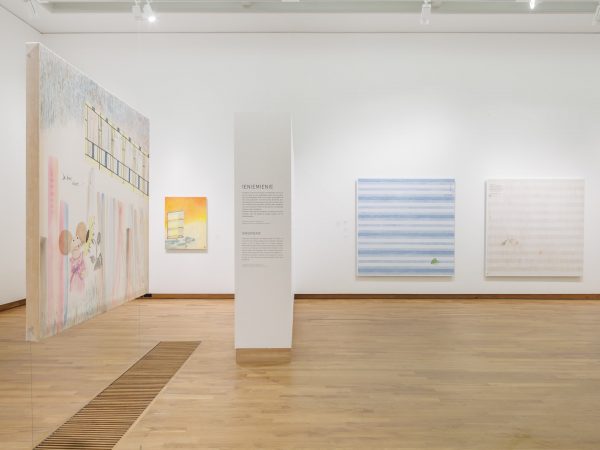
Evelyn Taocheng Wang | “Het Licht Is Rond” @ Dordrecht Museum
2023.09.16-2024.03.31
-
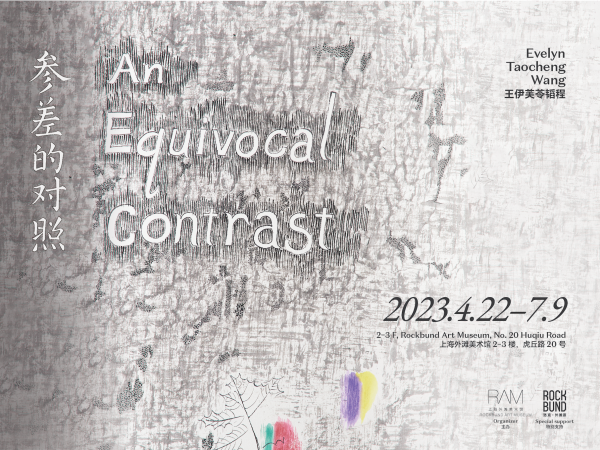
Evelyn Taocheng Wang | “An Equivocal Contrast” @ Rockbund Art Museum
2023.04.22-2023.07.09
-
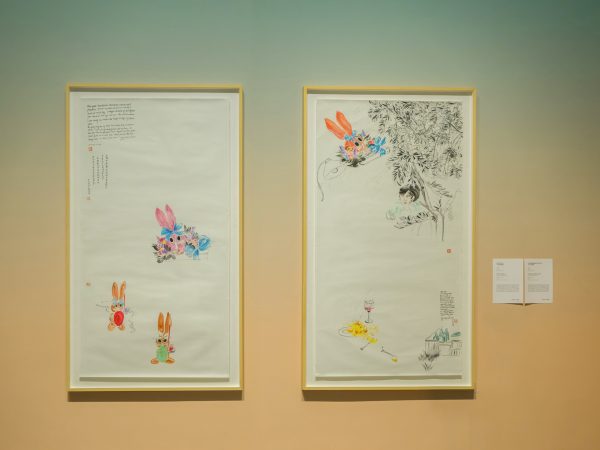
Evelyn Taocheng Wang | “Nián Nián :The Power and Agency of Animal Forms” @ Deji Art Museum
2023.01.15-2023.04.16
-
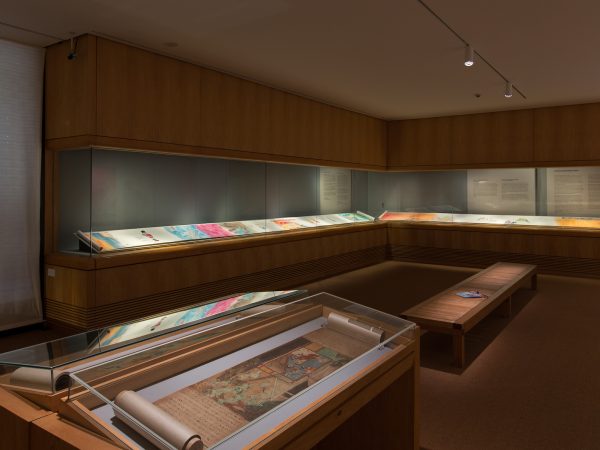
Evelyn Taocheng Wang | “Horizons” @ The Museum of East Asian Art
2022.10.21-2023.04.10
-
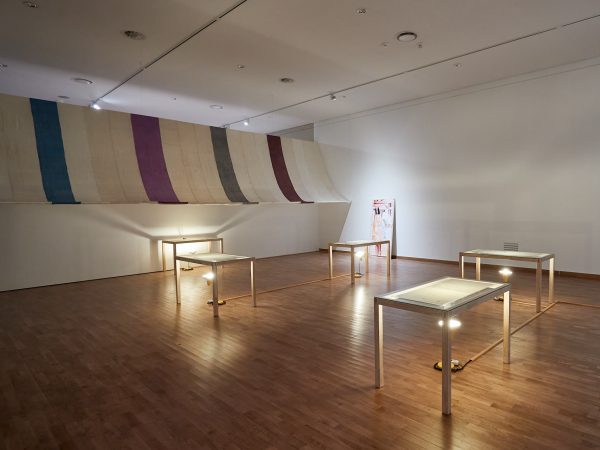
Evelyn Taocheng Wang | 2022 Busan Biennale – “We, On the Rising Wave” @ MoCA Busan
2022.09.03-2022.11.06
-
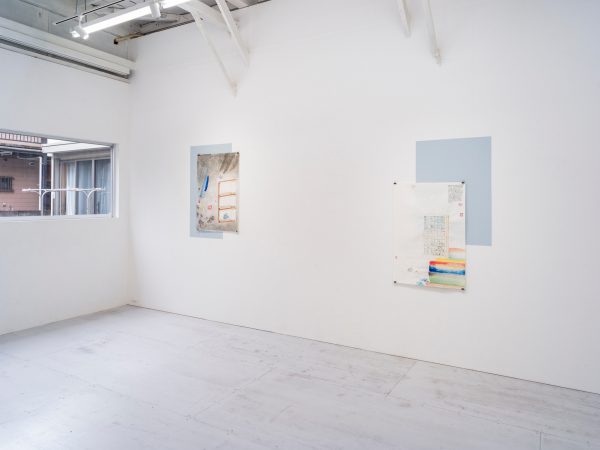
Evelyn Taocheng Wang | “Norwegian Music in Dutch Window” @ KAYOKOYUKI
2022.06.24-2022.07.31
-
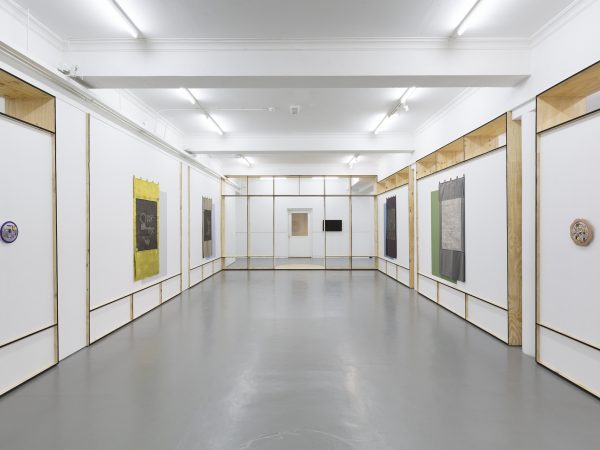
Evelyn Taocheng Wang | “|||: She spins the thread, she measures the thread, she cuts the thread” @ Nest
2021.06.05 – 2021.08.01
-
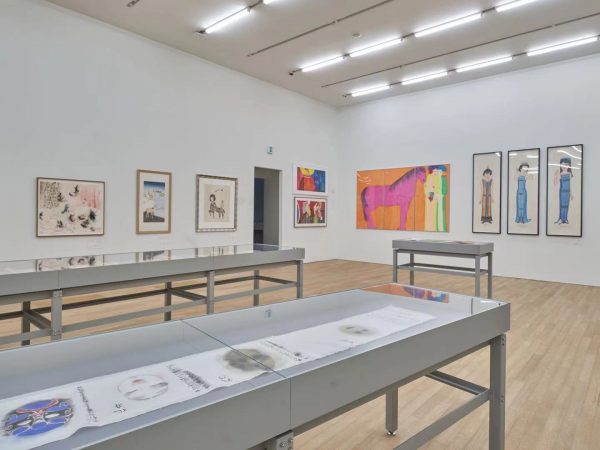
Evelyn Taocheng Wang | “Ink City” @ Tai Kwun Contemporary
2021.04.23-2021.08.01
-
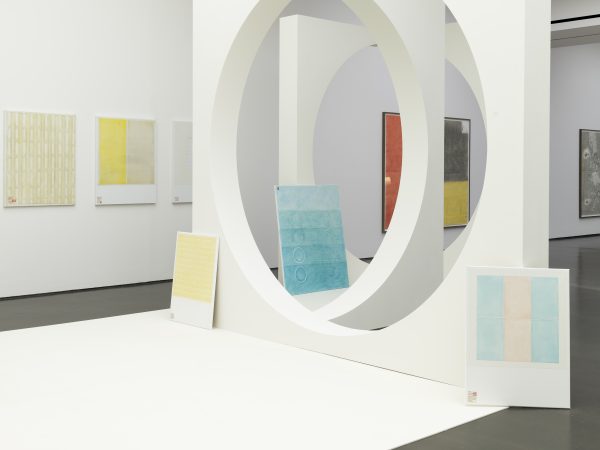
Evelyn Taocheng Wang | “Reflection Paper” @ Kunstverein Düsseldorf
2020.12.22-2021.05.02
NEWS
ANTENNA-TENNA
-
Evelyn Taocheng Wang: Who is the master?|Isabel Parkes
Wang is a rule bender. A commitment to fusing right with wrong, quotidian with institutional, and high with low courses through her practice. She inures herself to familiar formats in order to better interrupt her process of making and interpreting those formats This Trojan horse approach cultivates an active experience of looking that carefully conflates fantasy with melancholy, introspection with pop culture, and history with a version of the future that feels uncannily, at times unnervingly, familiar. ‘As an artist, I have lots of work to do to simply mix my two different elements: classical ones with new forms, new words, new body cultures, new national identities.’ Yet, as she adds, ‘All different elements can exist.’ Perhaps this is something to keep in mind when looking at Wang’s work: that the splintering or questioning it provokes, the natural light and the fake shadows, might together be signs of a new and fluid, if more dissonant, kind of coexistence. -
Mutter, Ich bin dumm! Evelyn Taocheng Wang | Hendrik Folkerts
I am looking at a painting by the Chicago-based Surrealist artist Gertrude Abercrombie, Self-Portrait of My Sister, created in 1941. The woman has sharp features, an elongated neck, and her gaze projects onto an unknown horizon beyond the picture frame. The radiant blue of her eyes echoes the green and blue of her dress, collar, and hat, the latter adorned with dark purple grapes and a corkscrew. Her lips are pressed, giving her face a stern, austere expression, in subtle contrast with the playful gesture of her right hand embracing her left wrist. Tellingly, Abercrombie was an only child. The artist used self-portraiture to create an alter ego, an imaginary sister—was she smarter, prettier, meaner, or more real somehow? In her records, she would refer to this painting as “Portrait of the Artist as Ideal,” stating: “It’s always myself that I paint, but not actually, because I don’t look that good or cute.” The painting reminds me of Evelyn Taocheng Wang, and all the other possible Evelyns envisioned by Wang. -
Openings: Evelyn Taocheng Wang|Karen Archey
THERE IS NO ONE THING that we could call the “immigrant experience,” but certainly everyone who has immigrated is familiar with how mundane misunderstandings can reveal cultural tectonics, of how humor can sometimes be mobilized to leaven pain. What’s the correct time of day to introduce yourself to a new neighbor? How earnestly should you respond to the question “How are you?” Will you come off as suspicious to the neighbors if your curtains remain drawn? The answers to these questions might seem relative or merely dependent on personal proclivity, yet one’s approach to these everyday situations constitutes, in part, the je ne sais quoi of national belonging. And while learning a new culture can be refined into a science, other qualities will still mark us as different, factors comprising who we are, where we come from, and our appearance.
